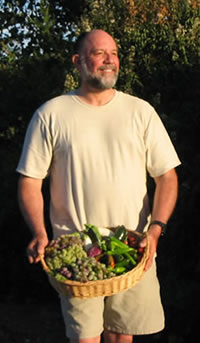
Zen Buddhist Koans
Zen Buddhist and Taoist Literature
Indexing, Research, Bibliography, Commentary
Koans, Essays, Books, Lectures, Links, Information
By Michael P. Garofalo
Koans, Stories, Encounters, Mondos, Dialogues, Questions, Commentaries, Testing, Cases
Chan Buddhists, Zen Buddhists, Taoists, Philosophers
China, Japan, and the Pacific West Coast of the USA
Classical, Medieval, and Contemporary Texts
Subject Index to 1,975 Zen Buddhist Koans
Blue Cliff Record 100 Koans (BCR)
Book of Serenity 100 Koans (BOS)
Dogen's Shinji Mana Shobogenzo 301 Koans (DSMS)
Dogen's Shobogenzo 95 Essays (DSE)
Entangling Vines 272 Koans (ENT)
Fireplace Records 40 Chapters (TFR)
Flock of Fools 98 Parables (OHPB)
Opening a Mountain 60 Koans (OM)
Record of Empty Hall 100 Koans (REH)
Samurai Zen: The 100 Warrior Koans (SAM)
Sound of One Hand 148 Koans (SOH)
Transmission of Light 53 Biographies (TOL)
Vegetable Root Discource (VRD)
The Whole World is a Single Flower 365 Koans (WWSF)
Zen and the Ways 40 Koans (ZWAY)
Zen Flesh Zen Bones 100 Koans (ZFZB)
Zen Master Raven 183 Koans (ZMR)
Dao De Jing - Tao Te Ching (DDJ)
Koans, Mondos, Dialogues, Tests, Lessons, Lectures, Brief Stories, Anecdotes, Lore
History, Public Records or Cases, Interactions,
Parables,
Questions and Answers, Puzzles,
Challenges, Inquiries, Meditations, Tales, Teaching, Teishos, Introspections, Koans
Essays, Books, Chapters, Talks
Subject Index to 1,975 Zen Buddhist Koans
Subject Index to Zen Buddhist and Taoist Literature
Koans, Essays, Books, Lectures, Links, Sermons, Information
Indexing by Michael P. Garofalo
Tenth Version, December 28, 2023. PDF, Updated Monthly. 578 Pages.
Green Way Research, Vancouver, Washington
Zen Buddhist Koans, Zen and Taoist Literature
Indexes, Information, Sources, Commentary, Bibliography:
https://www.egreenway.com/buddhism/koansdup1.htm
Subject Index to 1,975 Zen Buddhist Koans
Keys to Zen Buddhist Koans Database Collections
Research, Indexing, Studies by Michael P. Garofalo
The Librarian of Gushen Grove
Valley Spirit Center, Red Bluff, Northern California

Introduction Bibliography Quotations Index Links Resources Reading List
Cloud Hands Blog Buddhism Paramitas Taoism Virtues Stoicism Critiques
Koans, Mondos, Stories, Exchanges, Sutras, Cases:
Bibliography, Resources, Links, Reading List
A
Are You Still Here: Zen Teachings of Kyogen Carlson. By Kyogen Carlson. Edited by Sallie Tisdale. Foreword by Jan Chozen Bays. Shambhala, 2021, 321 pages. Kyogen Carlson (1948-2014) was the Abbot and Roshi for the Dharma Rain Temple in Portland, Oregon. One of his Dharma heirs, Sallie Tisdale, edited his talks and writings. Kyogen Carlson first trained with Jiyu Kennett at Mount Shasta Abbey in Northern California. VSCL, Paperback.
Authority Documents, English Language Texts, Indexed in the Brief Spiritual Lessons Database Project
B
Best Koan Books: My Favorites. By Michael P. Garofalo.
The Blue Cliff Record 100 Koans
(Pi Yen Lu, Hekiganroku) BCR
The Blue Cliff Record Koan Collection (BCR)
100 Cases of Brief Koans, Stories, Spiritual Encounters, Wisdom Tales, Sermons, Dialogues, Extensive Commentary
Compiled, copied, and shared by Chan Master Xuedou Zhongxian (980-1052 CE). Commentary by Engo.
The Blue Cliff Record BCR 100 Cases Buddhist Text Authority:
The Blue Cliff Record, Translated with commentary and notes by Thomas Cleary and J. C. Cleary. Foreword by Taizan Maezumi Roshi. Shambhala, Boulder Colorado, 1977, 2005, 648 pages. ISBN: 978-1-59030-232-3. VSCL, Paperback.
Indexed by Michael P. Garofalo.
Subject Index for the Blue Cliff Record 100 Koans Collection (BCR). PDF, Second Draft, 8/11/2023, 29 pages.
Alphabetical List of the Blue Cliff Record (BCR) 100 Koans Collection Cases. PDF, Second Draft, 8/11/2023, 4 pages.
List of Cases by Case Numbers in the Blue Cliff Record (BCR) Koan Collection. PDF, Second Draft, 8/11/2023, 4 pages.
Subject Index to 1,975 Zen Buddhist Koans
Blue Cliff Record - Wikipedia In the Song dynasty (960-1279) Zen flourished in China. Zen Master Xuedou Zhongxian (Jap. Setcho) (980-1052) sorted through hundreds of Yulu collections of encounter dialogues, and came up with 100 good examples, or Cases, for Zen training purposes. His compilation was called The One Hundred Odes.
Odes to a Classic Hundred Standards By Xuedou Zhongxian
The Chinese Zen Master Yuanwu Kegin (Jap. Engo) (1063-1135) revised The One Hundred Odes. He added introductions/prefaces for each Case, added some all the recapitulation verses, added notes and added comments. After his efforts, his written document came to be titled The Blue Cliff Record, Pi Yen Lu, Hekiganroku by later users.
Blue Cliff Record By Matthew Juksan Sullivan.
Blue Cliff Record Translated by Joan Sutherland Roshi and John Tarrant Roshi. "The hundred cases of the Blue Cliff Record were compiled in the eleventh century by the Chan teacher Xuedou Chongxian, who wrote his own verses and remarks for each. In the twelfth century, Yuanwu Keqin added introductions and commentaries to the cases and to Xuedou’s verses. The name comes from the place in Hunan where Yuanwu gave his dharma talks on the collection." The Blue Cliff Record by Xuedou Chongxian & Yuanwu Keqin. Chinese : Bìyán Lù Japanese : Hekiganroku.
The Blue Cliff Record.
Translated by Thomas Cleary and J. C. Cleary. Foreword by Taizan Maezumi
Roshi. Boston, Shambhala, 2005.
Glossary, biographies, bibliography, 648 pages. ISBN: 9781590302323. VSCL, Paperback.
Two Zen Classics: Mumonkan and Hekiganroku. Translated with commentaries by Katsuki Sekida. Edited and introduced by
A. V. Grimstone. New York, Weatherhill, 1977. Index, 413 pages.
ISBN: 0834801302. VSCL.
The Garden of Flowers and Weeds: A New Translation and Commentary on the Blue Cliff Record. By Matthew Juksan Sullivan. Monkfish Pubs., 2021, 580 pages. VSCL, Hardbound.
Buddhism: Bibliography, Links, Information, Resources. Compiled by Michael P. Garofalo.
Zen Buddhist Koans and Information: https://www.egreenway.com/buddhism/koansdup1.htm By Michael P. Garofalo.
The Book of Mu: Essential Writings on Zen's Most Important Koan.
Edited by James Ishmael Ford and Melissa Myozen Blacker. Foreword by John
Tarrant. Wisdom Publications, 2011. 352 pages. ISBN:
978-0861716432.
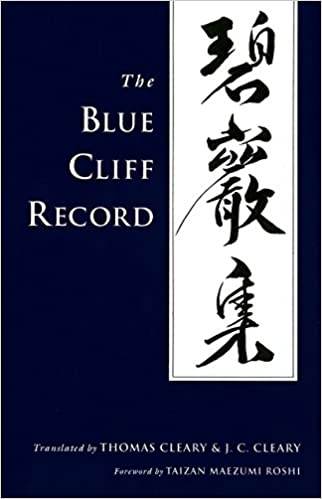
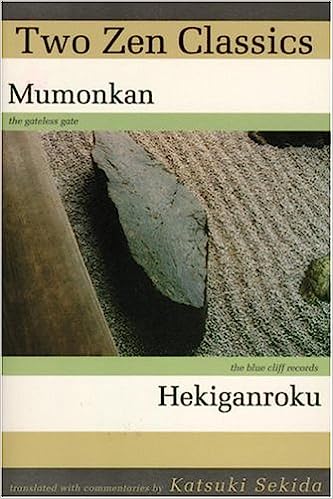
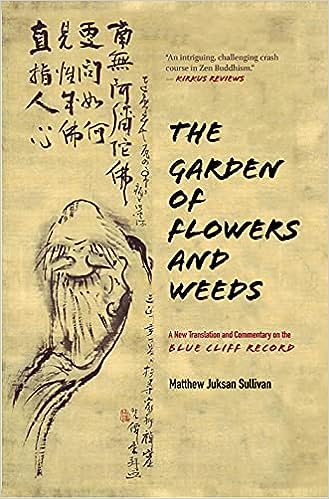
![]()
Book of Serenity 100 Koans (BOS)
Book of Equanimity or Book of Serenity (BOS)
The Book of Serenity (BOS) Book of Equanimity
100 Cases of Brief Stories, Spiritual Encounters, Koans, Wisdom Tales, Sermons, Dialogues, Parables
Compiled and published around 1224 CE.
Indexed by Michael P. Garofalo. Second Draft on August 26, 2023.
Primary Source for Indexing: The Book of Serenity: One Hundred Zen Dialogues. Translated with commentary by Thomas Cleary, 2005, 512 pages.
Subject Index to Cases in the Book of Serenity (BOS) 100 Koans Collection. Second Draft, August 25, 2023, 26 pages, PDF.
Alphabetical List of Cases in the Book of Serenity (BOS) 100 Koans Collection. Second Draft, August 25, 2023, 4 pages, PDF.
List of Cases by Case Numbers in the Book of Serenity (BOS) 100 Koans Collection. Second Draft, August 25, 2023, 4 pages, PDF.
Subject Index to 1,975 Zen Buddhist Koans and Discourses
The Book of Equanimity: Illuminating Classic Zen Koans.
By Gerry Shishin Wick. Foreword by Bernie Glassman. Boston, Wisdom
Publications, 2005. Recommended reading list, list of names index, 331 pages. ISBN: 9780861713875.
Book of Serenity: One Hundred Zen Dialogues. Translation and commentary by Thomas Cleary. Shambhala, 2005, glossary, notes, 463 pages. 100 Koans. VSCL, paperback.
Book of Serenity Translated by Joan Sutherland Roshi and John Tarrant Roshi. "The hundred koans of the Book of Serenity, also translated as the Book of Equanimity, were among those written by twelfth-century Chan teacher Hongzhi Zhengjue. In the thirteenth century, Wansong Xingxiu compiled Hongzhi’s koans and wrote commentaries for each. Although the collection is associated with the Caodong / Soto school, they are also taken up in koan study by Linji / Rinzai practitioners." Online PDF Version.
Shoyoroku (E. Book of Serenity, C. Ts’ung-jung lu) Online version of the Book of Serenity. Congrong Lu.
A collection of 100 koans, originally compiled in the 12th century by Wanshi Shogaku (C. Hung-chih Cheng-chüeh).
Book of Equanimity - Wikipedia 100 Cases. Compiled by Wangsong Zingxiu (1166-1246), and first published in 1224. The book comprises a collection of 100 koans written by the Chan Buddhist master Hongzhi Zengjue (1091-1157), together with commentaries by Wansong. Wansong's compilation is the only surviving source for Hongzhi's koans.
Buddhism: Bibliography, Links, Information, Resources. Compiled by Michael P. Garofalo.
Zen Buddhist Koans and Information: https://www.egreenway.com/buddhism/koansdup1.htm By Michael P. Garofalo.
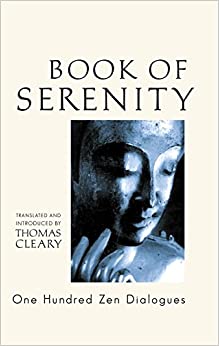
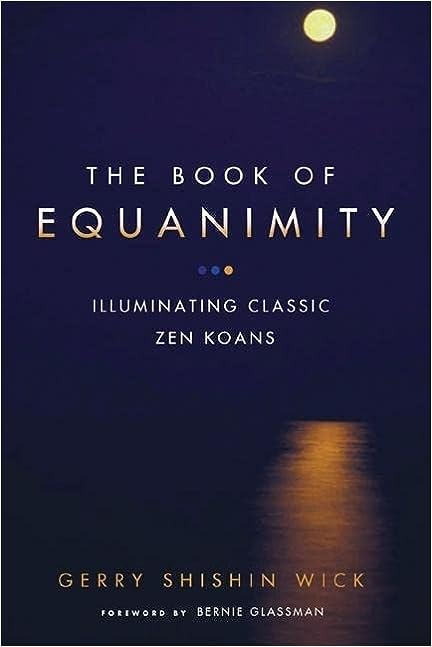
![]()
B
Zen Koan Books I Use in My Research and Study of Koan Collections
Bring Me the Rhinoceros: And Other Zen Koans That Will Save Your Life.
By John Tarrant. Boston, Shambhala, 2008. Notes, 194 pages.
ISBN: 9781590306185. A fascinating, insightful, and useful
collection of commentaries on Zen Koans. Clear insights into how the
process of using koan practice can lead to a profound change of heart. VSCL, Paperback.
Buddhism: Bibliography, Resources, Links, Reading
List, Home Library. By Mike Garofalo.
Timeline of Zen Buddhist Development in America
Buddhism
Zen Index: The Compass of Zen by Zen Master Seung Sahn. Compiled and Edited by Hyon Gak Sunim. Preface by Maha Ghosananda. Forward by Stephen Mitchell. Index prepared by John Holland and Ty Koontz.
Buddhism: Bibliography, Links, Information, Resources. Compiled by Michael P. Garofalo.
Zen Koans: Indexes, Bibliography, Research, Commentary. By Michael P. Garofalo.
C
Cloud Dragon: Joan Sutherland, Roshi. Cloud Dragon: Joan Sutherland Dharma Works.
Cloud Hands Blog By
Mike Garofalo.
Confucius (551-479 BCE) Also known as Kong Qiu and Zong Zhong.
Text Authority: Confucius Analects: A New Translation with Annotations and Commentaries. By Raymond K. Li. Paperback. Iuniverse, 2020, 220 pages. VSCL, Paperback.
Subject Index to the Analects of Confucius. PDF, January 23, 2023, 25 pages.
The Four Books of Confucianism. Translated by James Legge (1815-1897). Animus Classics, 2021, 297 pages. VSCL, Paperback.
Subject Index to 1,975 Zen Buddhist Koans
Keys to Zen Buddhist Koans Database Collection
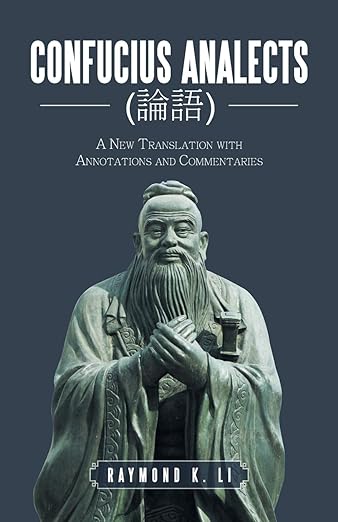
![]()
Cracking the Code of the Zen Koan: A Five Volume Zen Koan Anthology. Compiled by Stephen Wolinsky. E-Kindle Book, 2021, 676 pages. VSCL, Kindle E-Book.
Zen Koans: Indexes, Bibliography, Research, Commentary. By Michael P. Garofalo.
D
Dao De Jing by Laozi (Tao Te Ching by Lao Tzu)
Daodejing by Laozi, Te Ching by Lao Tzu
Daodejing by Laozi.
81 Verses, Cases, Chapters. Our popular version compiled around 220 CE.
Indexed by Michael P. Garofalo. Third Draft in June 2014.
A typical webpage created by Michael P. Garofalo for each one of the 81 brief Chapters (Verses, Cases, Sections) of the Daodejing includes 25 different English language translations or interpolations for that Chapter, 5 Spanish language translations for that Chapter, the Chinese characters for that Chapter, the Wade-Giles and Hanyu Pinyin transliterations (Romanization) of the Mandarin Chinese words for that Chapter, and 2 German and 1 French translation of that Chapter. Each webpage for each one of the 81 Chapters of the Daodejing includes extensive indexing by key words, phrases, and terms for that Chapter in English, Spanish, and the Wade-Giles Romanization. Each webpage on a Chapter of the Daodejing includes recommended reading in books and websites, a detailed bibliography, some commentary, research leads, translation sources, a Google Translate drop down menu, and other resources for that Daodejing Chapter.
Chapter and Thematic Index (Concordance) to the Tao Te Ching by Lao Tzu
English Language Daodejing Translators' Source Index
Spanish Language Daodejing Translators' Source Index
Ripening Peaches: Taoist Studies and Practices
Taoism: A Selected Reading List
Daodejing by Laozi (DDJ)
81 Chapters, Verses, Cases, Sections.
Our popular Chapter order version was compiled around 220 CE.
Indexed by Michael P. Garofalo. First Draft on March 29, 2023.
Source for Case/Verse/Chapter Titles: Tao Te Ching translation by Lin Yutang in 1955.
For the Koan Database, I limited search terms/Tags to 4 entries.
My more extensive online searchable Concordance for the Tao Te Ching is described above.
Subject Index to the 81 Chapters in the Tao Te Ching (DDJ). PDF, 3/29/2023, 13 pages.
List by Chapters Numbers for the 81 Chapters in the Daodejing (DDJ). PDF, 3/29/2023, 3 pages.
Alphabetical List of the Titles of the 81 Chapters in the Tao Te Ching (DDJ). PDF, 3/29/2023, 3 pages.
Subject Index to 1,546 Taoist Lessons, Chapters, Stories
Subject Index to 3,855 Lessons from Solitary Taoists, Stoics, and Zen Buddhists
Keys to Zen Buddhist Koans Database Collection
![]()
Daoism or Taoism
Brief Spiritual Lessons, Tales, Stories, Fables
Daoism: Subject Index to Daoist and Zen Buddhist Literature
Tales From the Tao: The Wisdom of the Taoist Masters. By Solala Towler. Introduction by John Cleare. Watkins, 192 pages, 2017. VSCL.
Tales of the Dancing Dragons: Stories of the Tao. By Eva Wong. Shambhala, 174 pages, 2007.
The Boy, the Mole, the Fox, and the Horse. By Charlie Mackesy. Harpers, 2018, 128 pages.
Tales of the Taoist Immortals. By Eva Wong. Shambhala, 2001, 176 pages.
365 Tao: Daily Meditations. By Deng Ming Dao. Harper One, 1992, 400 pages.
The Dao in Action: Inspired Tales for Life. By Yang Jwing-Ming, Ph.D., YMAA, 2019, 236 pages. VSCL.
Taoism: Tao Te Ching, Bibliography, Resources, Indexes, Commentary. By Mike Garofalo.
Lieh-Tzu: A Taoist Guide to Practical Living Translated by Eva Wong. Boston, Shambhala, 2001, 246 pages, VSCL. 111 Stories.
Dao De Jing or Tao Te Ching. Extensive website by Michael P. Garofalo.
Subject Index to 1,546 Taoist Lessons, Chapters, Stories
Subject Index to 1,546 Taoist Lessons, Chapters, and Stories
Indexing by Michael P. Garofalo
First Version, July 23, 2023. Updated Quarterly. 83 Pages.
Green Way Research, Vancouver, Washington
DDJ Dao De Jing 81 Chapters Lessons Taoist
DMD 365 Tao 365 Chapters Meditations Taoist
EDT Everyday Tao 256 Chapters Lessons Taoistt
ICHI I Ching Yijing 64 Hexagrams Taoist
PG Philsopher's Garden of Insights
TFR Fireplace Records 35 Chapters Philosopher
TFTO Tales From the Tao 31 Chapters Taoist
TGPL Lieh-Tzu 111 Chapters Lessons Taoist
TLT Lunar Tao 150 Chapters Events Taoist
VES Vitality Energy Spirit 100 Lessons Taoist
WEN Wen-Tzu 180 Chapters Lessons Taoist
ZHUA Zhuangzi Chuang Tzu 33 Chapters Taoist
Taoist Lessons, Chapters, and Stories:
https://www.egreenway.com/buddhism/koans.htm
Taoist Indexing Completion Target: July 1, 2025
Subject Index to 1,546 Taoist Lessons, Chapters, Stories
Keys to Zen Buddhist Koans Database Collection
Taoism: Bibliography, Links, Resources, Information. Compiled by Michael P. Garofalo.
Chapter and Thematic Index (Concordance) to the Tao Te Ching by Lao Tzu Indexed by Michael P. Garofalo. 81 Chapters
Wandering on the Way. Early Taoist Tales and Parables of Chuang Tzu. Translated by Victor H. Mair. Bantam, 1994, 402 pages, VSCL. 33 Stories.
The Book of Chuang Tzu. Translated by Martin Palmer and Elizabeth Breuilly. Penguin Classics, 2007, 352 pages. VSCL. 33 Stories.
Chuang-tzu: The Tao of Perfect Happiness. Translated, annotated, and explained. By Livia Kohn. Skylight, 240 pages, VSCL. 33 Stories.
Subject Index to 3,855 Lessons from Taoists, Stoics, and Zen Buddhists
Keys to Zen Buddhist Koans Database Collections
Subject Index to 1,546 Taoist Lessons, Chapters, Stories
![]()
Dharma Rain Zen Center. Portland, Oregon. Soto Zen Tradition.
Dogen's Shinji Mana Shobogenzo Koans
Dogen's Shinji Mana Shobogenzo 300 Koans Collection (DSMS)
Buddhism: Dogen's Shinji Mana Shobogenzo Koan Collection DSMS 300 Koan Cases
Text Authority:The True Dharma Eye: Zen Master Dōgen's Three Hundred Koans.
Translated by Kazuaki Tanahashi and John Daido Loori, 2005, 472 pages.
Compiled, Copied, and Shared by Zen Master Dogen around 1240 CE.
Indexing by Michael P. Garofalo
Subject Index to All Cases in Dogen's Shinji Mana Shobogenzo 300 Koan Collection. PDF, 4/30/2023, 51 pages.
Alphabetical Order List of English Titles of Cases in Dogen's Shinji Mana Shobogenzo 300 Koan Collection. PDF, 4/30/2023, 11 pages.
Cases in Numerical Order of English Titles in Dogen's Shinji Mana Shobogenzo 300 Koan Collection. PDF, 4/30/2023, 11 pages.
Alphabetical Order List of the Teachers in Dogen's Shinji Mana Shobogenzo 300 Koan Collection. PDF, 4/30/2023, 11 pages.
Subject Index to 3,855 Lessons from Zen Buddhists, Solitary Taoists, and Stoics
Subject Index to 1,975 Zen Buddhist Koans
Keys to Zen Buddhist Koans Database Collection
Buddhism: Bibliography, Links, Information, Resources. Compiled by Michael P. Garofalo.
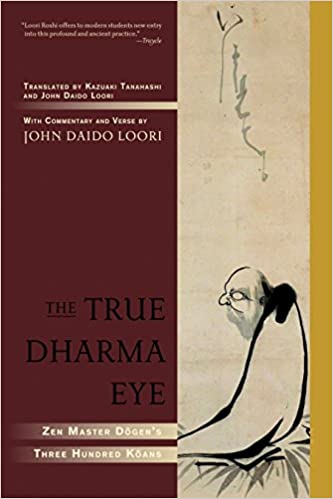
![]()
Dogen, Eihei (1200-1253 CE) Japanese Soto Zen Master
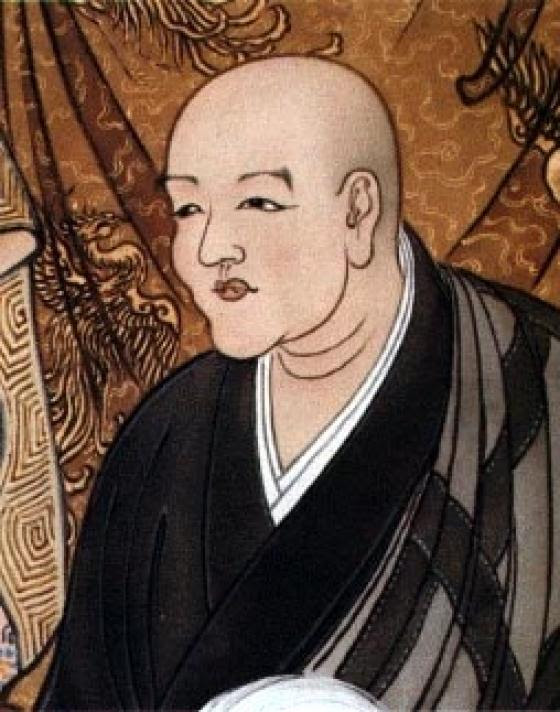
Master Dogen's Shinji Shobogenzo: 301 Koan Stories. Translated with commentary by Gudo Nishijima; edited by Michael Luetchford. Kindle E-Book, 397 pages, 2020. VSCL, Kindle E Book.
The True Dharma Eye: Zen Master Dōgen's Three Hundred Koans.
Translated by Kazuaki Tanahashi and John Daido Loori. Commentary and verse by John Daido Loori.
Boston, Shambhala, 2009. Index of koans, glossary, biographical, lineage
charts, notes, 540 pages. ISBN: 978-1590302427.
"When the thirteenth century master Eihei Dogen, one of the most influential
thinkers in Zen Buddhism and founder of the Japanese Soto school, returned to
Japan after four years of study in China, the fruit of his pilgrimage was
recorded in a collection of koans called the Chinese Shobogenzo, also
known as Shinji or Mana Shobogenzo. This collection of three
hundred main cases was first published in 1766 under the title Shobogenzo
Sambyakusoku (Treasury of the True Dharma Eye: Three Hundred Cases)." VSCL, Paperback, VSCL.
Dogen's Extensive Record: A Translation of th Eihei Koroku. By Eihei Dogen.
Translated by Shohaku Okumura. Edited by Dan Leighton. Foreword by Tenshin Reb Anderson.
Contributions by John Daido Loori and Steven Heine. Wisdom Pubs., 2010, 824 pages, VSCL, Paperback.
Dogen Zenji's Genjo-Koan. By Shohaku Okumura.
Dogen and Koan: The Ultimate Truly Definitive Unquestionable Smoking Gun. By Dosho Port.
Dogen - Indexes, Bibliography, Links, Resources, Information
Koans in the Dogen Tradition: How and Why Dogen Does What He Does with Koans. By Steven Heine. PDF File.
Eihei Dogen: Mystical Realist. By Hee-Jin Kim. Wisdom, 1975, 2004, index, bibliography, notes, 334 pages.
Dogen's Genjo Koan: Three Commentaries "Counterpoint, 2012. 240 pages. ISBN: 978-1582437439. "Our
unique edition of Dogen’s Genjo Koan (Actualization of Reality)
contains three separate translations and several commentaries by a wide variety
of Zen masters. Nishiari Bokusan, Shohaku Okamura, Shunryu Suzuki, Kosho
Uchiyama. Sojun Mel Weitsman, Kazuaki Tanahashi, and Dairyu Michael Wenger all
have contributed to our presentation of this remarkable work. There can be no
doubt that understanding and integrating this text will have a profound effect
on anyone’s life and practice."
Dogen and the Koan Tradition: A Tale of Two Shobogenzo Texts. By Steven Heine. SUNY, 1993, 352 pages.
Dogen - Wikipedia
Japanese Zen Buddhist Philosophy - Stanford Encyclopedia of Philosophy.
Buddhism: Bibliography, Links, Information, Resources. Compiled by Michael P. Garofalo.
The Essential Dogen. Edited by Kazuaki Tanahashi and Peter Levitt,232 pages.
Master Dogen's Shobogeenzo Zuimonki Essays. Translated with commentary by Shohaku Okumura. Wisdom, 2022, 512 pages. Bilingual Edition. Includes all of Dogen's Waka Poetry. VSCL, Paperback.
Buddhism: Dogen's Shobogenzo Lectures Collection DSL 95 Facisles/Chapters
Master Dogen's Shobogenzo. Translation and commentary by Gudo Nishijima and Chodo Cross, 1994, Four Books.
Dogen: Japan's Original Zen Teacher. By Steven Heine. Shambhala, 2021, 360 pages. VSCL, Paperback.
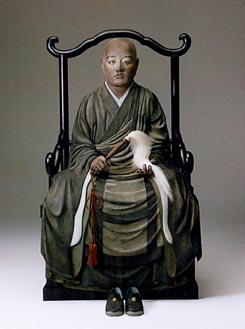
![]()
Dogen's Shobogenzo Essays (DSE)
Dogen's Shobogenzo Essays Collection (DSE)
95 Fascicles/Chapters, Lectures, Essays, Sermons, Encouragements, Meditations
Written and published around 1240 CE.
By by Eihei Dogen, Zen Master Abbot Roshi Author Poet (1200-1253 CE)
Indexed by Michael P. Garofalo. First Draft on April 23, 2023.
Text Authority: Master Dogen's Shobogenzo. Translated with notes by Gudo Nishijima and Chodo Cross. 4 Volumes, 1999.
Subject Index to Eihei Dogen's Shobogenzo 96 Essays (DSE). PDF, 63 pages. First Draft, July 11, 2023, 16 pages.
Japanese Alphabetical List of the Japanese Titles of the Fascicles/Chapters in Dogen's Shobogenzo (DSE) Essays, Lectures. PDF, 4 pages.
English Alphabetical List of the English Titles of the Fascicles/Chapters in Dogen's Shobogenzo (DSE) Essays, Lectures. PDF, 4 pages.
Numerical Order List of Japanese Titles of the Fascicles/Chapters in Dogen's Shobogenzo (DSE) Essays, Lectures. PDF, 4 pages.
Numerical Order List of English Titles of the Fascicles/Chapters in Dogen's Shobogenzo (DSE) Essays, Lectures. PDF, 4 pages.
Subject Index to 3,855 Lessons from Zen Buddhists, Solitary Taoists, and Stoics
Subject Index to 1,975 Zen Buddhist Koans
Keys to Zen Buddhist Koans Database Collection
Treasury of the True Dharma Eye: Zen Master Dogen's Shobo Genzo. Translated, edited, comments, notes by Kazuaki Tanahashi. Shambhala, 2013, 1280 pages. VSCL, Kindle E-Book.
Buddhism: Bibliography, Links, Information, Resources. Compiled by Michael P. Garofalo.
The Essential Dogen: Writings of the Great Zen Master. Edited by Kazuaki Tanahashi and Peter Levitt. Shambhala, 2013, 272 pages. VSCL, Paperback.
Buddhism: Bibliography, Links, Information, Resources. Compiled by Michael P. Garofalo.
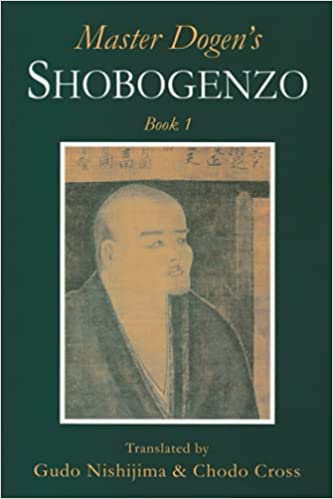
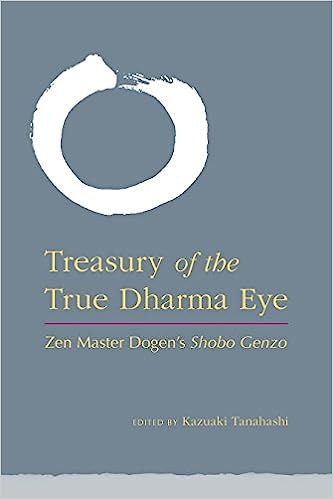
![]()
E
Entangling Vines 272 Koans Collection (ENT)
Entangling Vines: A Classic Collection of Zen Koans.
Translated and annotated by Thomas Yūhō Kirchner.
Foreword by Nelson Foster. Introduction by Ueda Shizuteru. Boston,
Wisdom Publications, 2013. Index, bibliography, charts, 338 pages.
ISBN: 9781614290773. A collection of 272 koans by Japanese Rinzai Zen
masters and scholars called the Shūmon kattōshŭ (Entangling Vines) dating
from 1689. Invaluable and unique biographies
of the Teacher/Authors of all the Koans in the Entangling Vines Collection. Extensive and detailed index on pages 312-338. Bibliography on pp. 304-312. Charts of the names or Teacher/Persons using Pinyin Romanization of Mandarin Chinese,
Wade-Giles Romanization of Mandarin Chinese, and Romanization of Japanese, and
Chinese characters for all indexes. Informative notes by Thomas Kircher for the 272 Koans. VSCL, Kindle E-Book and Paperback. All references to pages in the indexed documents are from this book.
Subject Index to Cases in the Entangling Vines Koan Collection. Indexed by Michael P. Garofalo. First Draft, June 15, 2023, PDF, 58 pages.
Alphabetical List of Cases in the Entangling Vines Koan Collection. Indexed by Michael P. Garofalo. First Draft, June 15, 2023, PDF, 10 pages.
Case Number Order - Entangling Vines Koan Collection. Indexed by Michael P. Garofalo. First Draft, June 15, 2023, PDF, 10 pages.
Subject Index to 3,855 Lessons from Zen Buddhists, Solitary Taoists, and Stoics
Subject Index to 1,975 Zen Buddhist Koans
Keys to Zen Buddhist Koans Database Collection
Buddhism: Bibliography, Links, Information, Resources. Compiled by Michael P. Garofalo.
Zen Koans: Indexes, Bibliography, Research, Commentary. By Michael P. Garofalo.
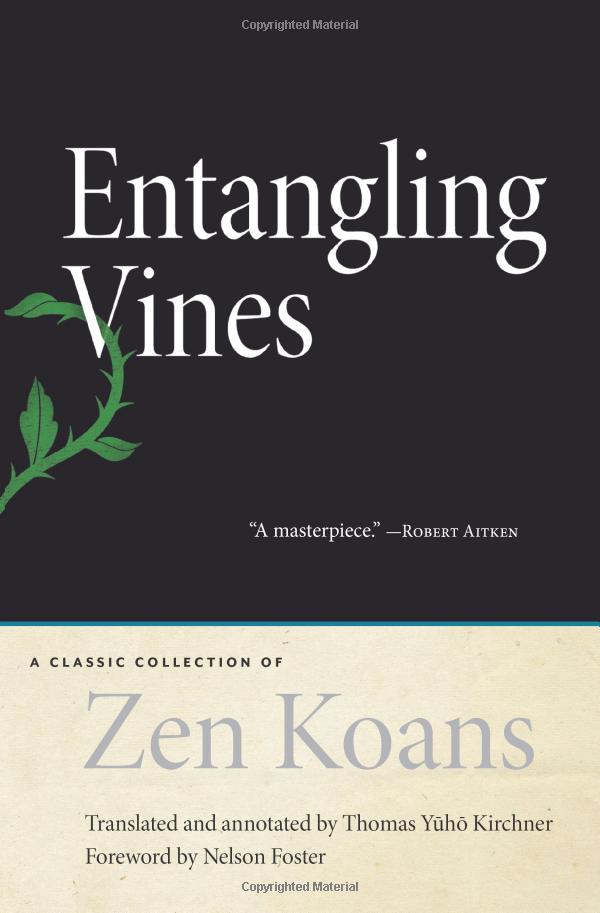
![]()
The Essential Teachings of Zen Master Hakuin
Translated by Norman Waddell. Shambhala Dragon Edtion. A translation
of Sokkō-roku Kaien-fusetsu. Boston, Shambhala, 1994.
Notes, index, 137 pages. ISBN: 0877739722. Hakuin was a painter,
calligrapher, and Zen master who lived from 1686-1769.
F
The Fireplace Records: Index of Chapter Titles. Links to the Cloud Hands Blog Posts. By Michael P. Garofalo. 40 Chapters as of 11/10/2023.
Cloud Hands Blog Posts of the Fireplace Records. The Cloud Hands Blog posts of The Fireplace Records include illustrations, photographs, book covers, paintings, links to resources, reading suggestions, comments, capping verses, notes, asides, and a Google Translate drop-down menu. By Michael P. Garofalo.
The Fireplace Records (Text) Version. All Chapters of the Fireplace Records in one hypertext file. By Michael P. Garofalo.
A work in progress. When finished, after 50 Chapters are completed, it will be published as a PDF file or as a paperback book.
Does not include the graphical elements of the Cloud Hands Blog version. Includes a Google Translate drop-down menu.
Subject Index to 40 Chapters of The Fireplace Records. November 10, 2023. PDF, 14 pages.
Numerical Order List of 40 Chapters from The Fireplace Records. November 10, 2023. PDF, 2 pages.
Alphabetical Order List of 40 Chapters from The Fireplace Records. November 10, 2023. PDF, 2 pages.
Subject Index to 1,975 Zen Buddhist Koans
Keys to Zen Buddhist Koans Database Collections
Fireplaces, Kitchens, Stoves, Campfires, Ovens, Pots, Kettles, Wood, BBQ
Literary reflections and flashes of insight around the fireplace
Compiled by Michael P. Garofalo
Quotations: Light, Sun, Fire, Sunshine, Heat, Vision Shadows, Shade, Flames

Michael P. Garofalo
Cloud Hands Blog
Biography
All of the following hypertext documents were created and published online
by Michael P. Garofalo, 1999-2023
Subject Index to 3,855 Lessons from Stoics, Zen Buddhists, and Solitary Taoists
Subject Index to 1,975 Zen Buddhist Koans
Subject Index to 1,546 Taoist Lessons, Chapters, Stories
Subject Index to 813 Stoic Lessons, Discourses, and Letters
Keys to Zen Buddhist Koans Database Collection
Taoism: Bibliography, Links, Resources, Information
Buddhism: Bibliography, Links, Information, Resources
Shifu Miao Zhang Points the Way
Pulling Onions. Over 1,043 One-LIne Sayings. By Michael P. Garofalo. Sayings, aphorisms, jokes, reminders, insights, gardening metaphors.
How to Live a Good Life: Advice from Wise and Respected Persons
Stoicism: Bibliography, Links, Information, Resources
Green Way Research Subject Index
![]()
Flock of Fools: One Hundred Parable Sutra (OHPB)
Flock of Fools: Ancient Buddhist Tales of Wisdom and Laughter From the One Hundred Parable Sutra. Translated and retold by Kazuaki Tanahashi and Peter Levitt. Grove Press, 2004, 208 pages.
Indexing by Michael P. Garofalo
Subject Index to The Flock of Fools. PDF, First Draft, December 10, 2023, 40 pages.
Case Number Index for The Flock of Fools. PDF, First Draft, December 10, 2023, 5 pages.
Alphabetical List of Cases for The Flock of Fools. PDF, First Draft, December 10, 2023, 5 pages.
Subject Index to 1,975 Zen Buddhist Koans
Subject Index to 3,855 Lessons from Stoics, Zen Buddhists, and Solitary Taoists
Keys to Zen Buddhist Koans Database Collection
Taoism: Bibliography, Links, Resources, Information. Compiled by Michael P. Garofalo.
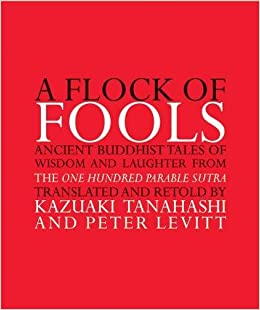
![]()
The Flowing Bridge: Guidance on Beginning Zen Koans.
By Elaine MacInnes. Edited by Patrick Gallagher. Foreword by Ruben
L. F. Habito. Sommerville, Massachusetts, Wisdom Publications, 2007.
160 pages. ISBN:
9780861715459. "Elaine MacIness, a Catholic nun and a Zen teacher in the
lineage of the renowned master Koun Yamada (author of Wisdom's The Gateless
Gate), offers exceptionally valuable guidance to beginners on how to work
with koans-and reveals an uncommon depth of insight and an easy technical
mastery of Zen's most misunderstood and most powerful tools.
G
The Garden of Flowers and Weeds: A New Translation and Commentary on the Blue Cliff Record. By Matthew Juksan Sullivan. Monkfish Pubs., 2021, 580 pages. VSCL, Hardbound.
Garofalo, Michael P. Brief Biography
Buddhism: Bibliography, Links, Information, Resources. Compiled by Michael P. Garofalo.
Gateless Gate
(Wumenquan, Mumonkan) 48 Koans GB
Compiled around 1250 CE
Gateless Gate GB Gateless Barrier 48 Cases Buddhist Text Authority:
The Gateless Gate: The Classic Book of Zen Koans. Translated with commentary and notes by Koun Yamada Roshi. Wisdom Publications, Somerville, MA, 2004, 2015, 301 pages. Numberous Appendices, Japanese-Chinese Name List, Essays. ISBN:978-0-86171-382-0. VSCL, Paperback.
Indexing by Michael P. Garofalo
Subject Index for the 48 Cases in the Gateless Barrier (GB). Second Draft, August 12, 2023, 20 Pages, PDF.
Alphabetical List of the 48 Case Titles in the Gateless Barrier (GB) Second Draft, August 12, 2023, 3 Pages, PDF.
List of Cases by the 48 Case Numbers for the Gateless Barrier (GB) Second Draft, August 12, 2023, 3 Pages, PDF.
Subject Index to 1,975 Zen Buddhist Koans
Keys to Zen Buddhist Koans Database Collection
The Gateless Gate: The Classic Book of Zen Koans
Commentary and translation by Koun Yamada. Foreword by Ruben L. F. Habito.
Wisdom Publications, 2004. 336 pages. ISBN: 9780861713820. "In The Gateless Gate, one of modern Zen Buddhism's uniquely influential
masters offers classic commentaries on the Mumonkan, one of Zen's
greatest collections of teaching stories. This translation was compiled with the
Western reader in mind, and includes Koan Yamada's clear and penetrating
comments on each case. Yamada played a seminal role in bringing Zen Buddhism to
the West from Japan, going on to be the head of the Sanbo Kyodan Zen Community." VSCL, Paperback. I used this book to prepare the First Draft (March 25, 2023) of indexing for the Gateless Gate; indexing stored in the GB database (GB = Gateless Barrier or Gateless Gate).
The Gateless Barrier: Zen Comments on the Mumonkan.
By Zenkai Shibayama. Shibayama Roshi (1894-1974). Translated by Sumiko Kudo.
Introduction by Shibayama Roshi. Preface by Kenneth W. Morgan, Colgate
University. Boston, Shambhala, 2000. Glossary, index, 361 pages. ISBN:
9781570627262. "For more than seven centuries the Mumonkan (Gateless
Barrier) has been used
in Zen monasteries to train monks and to encourage the religious development of
lay Buddhists. It contains forty- eight koans, or spiritual riddles, that must
be explored during the course of Zen training. Shibayama Zenkei (1894-1974), an
influential Japanese Zen teacher and calligrapher who traveled and lectured
throughout the United States in the 60s and 70s, offers his own commentary
alongside the classic text. The Gateless Barrier remains an essential text for
all serious students of Buddhism." These lectures (Teisho) on the
Gateless Barrier were given at Colgate University in 1974. VSCL, Paperback.
Gateless Gate. Translated by Joan Sutherland Roshi and John Tarrant Roshi. "Edited by Joan Sutherland Based on the translations of Shibayama Zenkei (Zen Comments on the Mumonkan), Yamada Koun (Gateless Gate), and Robert Aitken (The Gateless Barrier).
Gateless Gate or
Gateless Barrier, Compiled by Mumon in 1228 CE, Mumonkan, Wúménguān
無門關
Gateless Gate, Six
English Translations, Terebess Online
Passing Through the Gateless Barrier: Koan Practice for Real Life. By Guo Gu. Shambhala, 2016, 440 pages. VSCL, Paperback.
Gateless Gate, Online
Text in English and Chinese Characters
Gateless Gate, Online Text,
in English, Transcribed by Nyogen Senzaki
(1876–1958) & Paul Reps
(1895–1990) in 1934, in "Zen Flesh, Zen Bones," pp. 109-161.
Buddhism: Bibliography, Links, Information, Resources. Compiled by Michael P. Garofalo.
Gateless Gateway Joan Sutherland Roshi
Gateless Barrier - Wkipedia
Mumonkan. Translation and commentary by Reginald Horace Blyth. Title: Zen and Zen Classics, Volume Four: Momonkan. Hokuseido Press, 1966. This is a rare and expensive book in 2023.
The Gateless Barrier: The Wu-Men Kuan (Mumonkan). Translated with commentary by Robert Aitken. North Point Press, 1991, 325 pages. Bibliography, Notes, Glossary, Chinese-Japanese Name Lists. "The Gateless Barrier is generally acknowledged to be the fundamental koan collection in the literature of Zen. Gathered together by Wu-men (Mumon), a thirteenth-century master of the Lin-chi (Rinzai) school, it is composed of forty-eight koans, or cases, each accompanied by a brief comment and poem by Wu-men. Robert Aitken (1971-2010), one of the premier American Zen masters, has translated Wu-men's text, supplementing the original with his own commentary -- the first such commentary by a Western master -- making the profound truths of Zen Buddhism accessible to serious contemporary students and relevant to current social concerns." VSCL, Paperback. I used this book to prepare the Second Draft draft of indexing for the Gateless Gate; indexing stored in the GB database (GB = Gateless Barrier or Gateless Gate). Second Draft on August 12, 2023
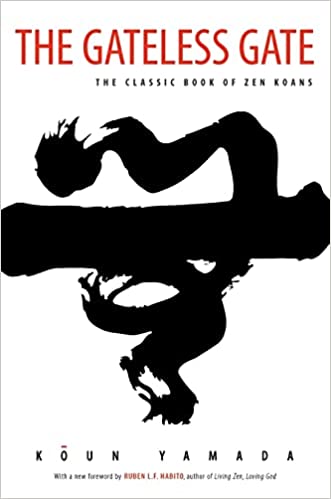
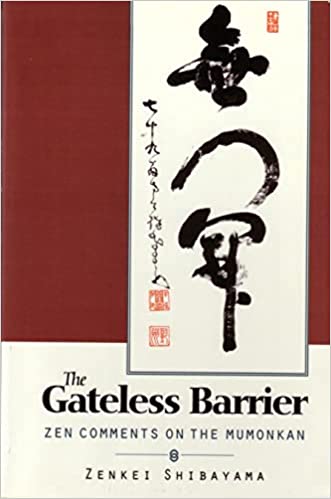
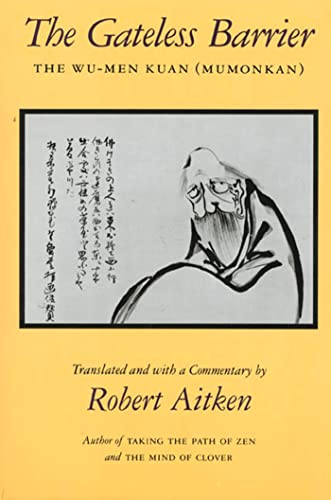
![]()
Great Short Poems. Compiled with commentary by Paul Negri. Dover Publications, 2000, 64 pages. VSCL, Paperback.
H
Zen Buddhism: A History. By Heinrich Dumoulin, S.J. Translated by James W. Heisig and Paul Knitter. Two Volumes.
Texts Used for Indexing:
Zen Buddhism: A History, Volume 1, India and China. By Heinrich Dumoulin, S.J.. Translated by James W. Heisig and Paul Knitter. Nazan Studies in Religion and Culture. New York, Macmillan Pub. Co., 1988, appendices, indexes, 349 pages. VSCL, paperback. Brown Cover.
Zen Buddhism: A History, Volume 2, Japan. By Heinrich Dumoulin, S.J.. Translated by James W. Heisig and Paul Knitter. Nazan Studies in Religion and Culture. New York, Macmillan Pub. Co., 1990, appendices, indexes, 509 pages. VSCL, paperback. Green Cover.
Subject Index to Zen Buddhism: A History by Heinrich Dumoulin. PDF, March 10, 2024, 30 pages. Indexing by Michael P. Garofalo.
Subject Index to 1,975 Zen Buddhist Koans
Keys to Zen Buddhist Koans Database Collection
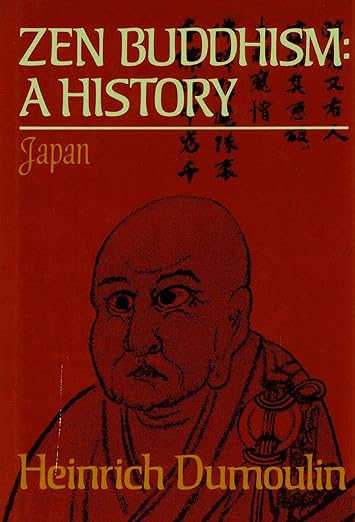
![]()
Hotetsu''s Zen Blog - Koan Index
I
Indexing Resources, Tools, Techniquses, References
Handbook of Indexing Techniques: A Guide for Beginning Indexers. By Linda K. Fetters. Information Today, 2013, 176 pages. VSCL, Paperback.
Indexing - Reference Texts for Brief Spiritual Lessons Database Project
Indexing Books. By Nancy C. Mulvany. Chicago Guides to Writing, Editing, and Publishing. University of Chicago, 2005, 320 pages.
Introduction to Indexing and Abstracting. By Ana D. Cleveland and Donald B. Cleveland. 4th Edition. Libraries Unlimited, 2013, 408 pages.
Michael P. Garofalo received a Master of Science in Library and Information Science (M.S.L.S.) in 1968 from the University of Southern California in Los Angeles. He worked for the City of Commerce Public Library from 1962-1969, and for the County of Los Angeles Public Library System from 1973-1998. He retired in 1998 from the County of Los Angeles Public Library System as the Regional Administrator for 22 libraries in the East Region in the San Gabriel Valley, and moved to Red Bluff, in Northern California. He became a web publisher in 1998. Mike worked part-time during the academic year for the Corning Union Elementary School District as District Librarian from 1998-2016 in Northern California. He retired in 2016 and moved to Vancouver, Washington. In 2023, he is studying, researching, and indexing Taoist and Buddhist texts from Classical, Medieval, and Contemporary periods; as well as other web publishing projects: Cloud Hands Blog.
Subject Index to 3.855 Lessons from Zen Buddhists, Solitary Taoists, and Stoics
Subject Index to 1,975 Zen Buddhist Koans
Subject Index to 1,546 Taoist Lessons, Chapters, Stories
Subject Index to 813 Stoic Lessons, Discourses, and Letters
Keys to Zen Buddhist Koans Database Collections
Brief Spiritual Lessons and Koans Project Homepage PDF
Keys to Zen Buddhist Koans Database Collection
Introduction to Zen Koans: Learning the Language of Dragons. By James Ishmael Ford. Foreword by Joan Halifax. Wisdom Publications, 2018, 264 pages. VSCL, Paperback.
Taoism: Bibliography, Links, Resources, Information. Compiled by Michael P. Garofalo.
Buddhism: Bibliography, Links, Information, Resources. Compiled by Michael P. Garofalo.
Introduction to Zen Training (SOG)
Subject Index to Introduction to Zen Training (SOG)
Introduction to Zen Training: A Physical Approach to Meditation and Mind-Body Training. By Omori Sogen. Foreword by Sayama Daian and Michael Kangen. Introduction by Trevor Leggett. Omori Sogen Totaishi (1904-1994). Tuttle, 1996, 2020. Index, glossary, lineage charts, 265 pages. VSCL, Paperback.
Omori Sogen (1904-1994) Japanese Rinzai Master (1904-1994) was a Japanese Rinzai Rōshi, a successor in the Tenryū-ji line of Rinzai Zen, and former president of Hanazono University, the Rinzai university in Kyoto, Japan. He became a priest in 1945. Ōmori Sōgen was a teacher of Kashima Shinden Jikishinkage-ryū swordsmanship, and a calligrapher in the Taishi school of Yamaoka Tesshū. He became well known for his unique approach to Zen practice integrating insights from his martial and fine arts training with traditional Zen methods; this approach has been described as a unity of Zen, Ken ("sword", referring to martial arts or physical culture), and Sho ("brush", referring to calligraphy or fine arts). He was a Japanese right-wing ultra-nationalist before World War II. Unfortunately, he had a serious stroke and was in a coma for two years before he died.
Omori Sogen: Zen Ken Sho (Zazen Practice, Body-Mind Physical Disciplines, and Artistic Creativity)
One Arrow, One Life: Zen, Archery, Enlightenment. By Kenneth Kushner, and Jackson Morisawa. Tuttle, 2000, 128 pages.
Buddhism: Bibliography, Links, Information, Resources. Compiled by Michael P. Garofalo.
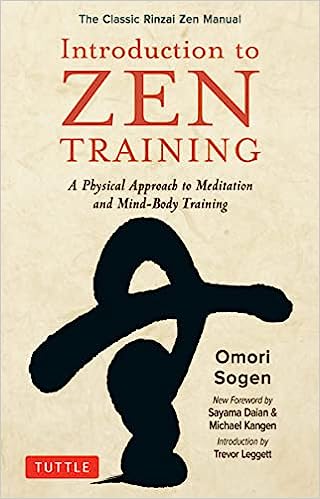
The Iron Flute: 100 Zen Koans.Translated by Nyogen Senzaki and by Ruth Strout McCandles. Introduction by Steve Hagen. Tuttle, 153 pages, 2011. Index, glossary, Chinese-Japanese lists of names. VSCL, Paperback. With commentary by Genro, Fugai, and Nyogen.
The Iron Flute was compiled, copied, and published by Genro in 1783.
Indexed by Michael P. Garofalo in 2023.
Subject Index for the 100 Koans in the Iron Flute (IF). PDF, July 1, 2023, 23 Pages.
Case Number List for the 100 Koans in the Iron Flute (IF). PDF, July 1, 2023, 4 Pages
Alphabetical List for the 100 Cases in the Iron Flute (IF). PDF, July 1, 2023, 4 Pages
Subject Index to 3,855 Lessons from Zen Buddhists, Solitary Taoists, and Stoics
Subject Index to 1,975 Zen Buddhist Koans
Keys to Zen Buddhist Koans Database Collection
Buddhism: Bibliography, Links, Information, Resources. Compiled by Michael P. Garofalo.
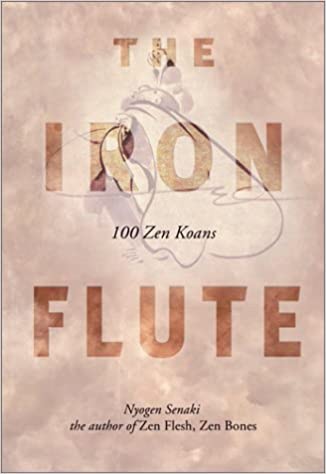
![]()
J
Japanese Zen Buddhist Philosophy - Stanford Encyclopedia of Philosophy
Joan Sutherland, Roshi. Cloud Dragon: Joan Sutherland Dharma Works.
K
Kamakura 40 Koans (ZWAY)
Text Authority: Zen and the Ways. By Trevor Leggett. Tuttlle, 1978, 1989, 1993, 258 pages. 40 Koan Cases.
Indexing by Michael P. Garofalo
Subject Index to the 40 Kamakura Koans. PDF, First Draft, October 10, 2023, 5 pages.
Case Number Index for the 40 Kamakura Koans. PDF, First Draft, October 10, 2023, 2 pages.
Alphabetical List of Cases for the 40 Kamakura Koans. PDF, First Draft, October 10, 2023, 2 pages.
Subject Index to 1,975 Zen Buddhist Koans
Buddhism: Bibliography, Links, Information, Resources. Compiled by Michael P. Garofalo.
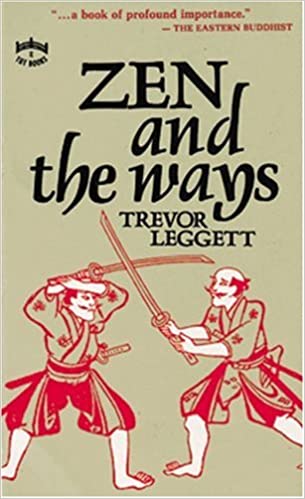
Koan Collections and Books on Koan from the ZenSite
Joan Sutherland, Roshi. Cloud Dragon: Joan Sutherland Dharma Works. Koan Collections
Koan Database Project: Indexes to Koan Collections
Koan Index from Hotetsu''s Zen Blog
Koan Index from Meredith Garmon
Koan Studies:
The Zen Site Essays, Reading Lists, Notes, Commentary.
Subject Index to 3,855 Lessons from Zen Buddhists, Solitary Taoists, and Stoics
Subject Index to 1,975 Zen Buddhist Koans
Keys to Zen Buddhist Koans Database Collection
Koan - Wikipedia. An informative, long and useful article.
Buddhism: Bibliography, Links, Information, Resources. Compiled by Michael P. Garofalo.
Koans: Information,
Bibliography, Quotations, Notes, Index. By Mike Garofalo.
Koans: The New World
Encyclopedia
Subject Index to 3,855 Lessons from Zen Buddhists, Solitary Taoists, and Stoics
Subject Index to 1,975 Zen Buddhist Koans
Subject Index to 813 Stoic Lessons, Discourses, and Letters
Subject Index to 1,546 Taoist Lessons, Chapters, Stories
Subject Index to 1,975 Zen Buddhist Koans
Indexing by Michael P. Garofalo
Fifth Version, August 14, 2023. Updated Monthly. 358 Pages, PDF.
Green Way Research, Vancouver, Washington
Zen Buddhist Koans and Information:
https://www.egreenway.com/buddhism/koansdup1.htm
Subject Index to 1,975 Zen Buddhist Koans
Keys to Zen Buddhist Koans Database Collections
Buddhism: Bibliography, Links, Information, Resources. Compiled by Michael P. Garofalo.
Koans: Database Project Introduction
Brief Spiritual Lessons (BSL) Database Project:
Zen Buddhist Koan Database, Taoist Database, Stoics Database
For the purposes of the Brief Spiritual Lessons (BSL) Database Project:
I define a 'Koan' as one kind of Brief Spiritual Lesson (typically 1 page in length, called a 'Case') from the Chan/Zen Buddhist traditions. The Taoist brief spiritual Lessons are teaching stories that are from 1 to 4 pages in length, often called 'Chapters' or 'Verses' rather than 'Cases'. These Brief Spiritual Lessons have been preserved for many centuries by Taoists, Chan Buddhists, Zen Buddhists, and Philosophers; and some were created since 1980. They are typically found in 'BSL/Koan/Meditations Collections" with from 48 to 365 brief spiritual lessons or meditations (mostly 1 page in length), not including later additions of commentaries, capping verses, poems, introductions, prefaces, and notes that can make for 2-6 pages of reading per Lesson.
Each brief spiritual Lesson (Case, Chapter) is titled in a Collection. Typically the Koan titles are listed numerically in the front of the Koan Collection; but the Lessons are in random order. There is no list of Lesson titles in alphabetical order. Typically, there are no detailed subject or title indexes to the many examples of Taoist or Buddhist brief spiritul Lessons in these 'BSL/Koan Collections'.
The Brief Spiritual Lessons Database Project attempts to provide the indexing needed for more detailed and comparative studies of these popular literary collections of brief spiritual Lessons from Taoists and Buddhists available since 1960 in the English Language. This database project is primarily a literary, philosophical, subject, bibliographical, historical, and comparative study. As I read and study these classic Taoist and Buddhist BSL/Koan Collections, my notes, correlations, thoughts and indexing become reflected in the many PDF files of this 2023-2024 Brief Spiritual Lessons Database Project. Also, these studies result in some of the Chapters of The Fireplace Records."
I use Microsoft's Access Database. My skill set for this database management software is at a beginner's level. However, I hope to improve in 2023-2024.
When inputing Sanskrit, Chinese, or Japanese personal names, places, references, or subjects I don't know how to use diacritical marks and special punctuation in Access. Therefore, this may create a little frustration for seasoned researchers whose hard earned skills at a second or third language might think I don't show more respect by using more accurate typography. The results are simple and practical, although they lack in typographical sophistication.
I try to be a decent indexer. I am very familiar with the original resources, having read many books in this area of inquiry since 1962. I reread the specific text a couple of times before indexing. Indexing is somewhat of an idiosycratic exercise in analysis of text. Hopefully, a few devotees of this literature will find the indexes useful. Naturally, I benefit greatly from the process of indexing in terms of insights, understanding, philosophical enchantment, and lifestyle guidance.
Sometimes, with very brief koans, it is difficult to index because you have little or no context, no information about the relationship between the speakers. Have they known each other briefly, for a long time, intimately, superficially, etc.? Sometimes, the commentary can give you some contextual information, but in other cases nothing at all. It is hard to interpret the thoughts or actions of the persons if you don't know about their relationship. Zen does emphasize spontaniety and freedom of expression by enlightened persons (Masters); however, some brief encounters result in, what I incorrectly interpret to be bizarre, mean, or rude behaviors between persons that don't seem to know each other in any way, e.g., a visitor to a Temple.
When titles begin with the article "The" I do not include the "The" in the Title. This prevents too many titles from clustering together.
Each Koan Collection is placed in a separate database. Each Koan Collection is give a Key Code to identify the Collection. For example, the key code of "ENT" identifies a koan from the book "Entangling Vines"; or, BCR for Blue Cliff Record. Here is a list of the Key Codes:
Keys to Zen Buddhist Koans Database Collections
The BSL/Koan Database Project is a long-term research, study, and indexing project starting in March of 2023. I update specific BSL/Koan Collection Databases s and produce "Draft" Versions of Reports as my research and study evolves in 2023-2025. No Rush ... slowly absorb the enchanting and inspiring brief spiritual lessons from Chan Buddhist, Daoist, Zen Buddhist, Stoic, and Philosophical Traditions.
Reading Zen Buddhist literature, translations, commentaries, books, audio recordings, essays, blog posts, and web pages have kept me busy and interested from 1961-2023. I was attracted to the Zen Buddhist non-Christian views on life's meaning, the reduction of emphasis upon supernatural beings and theological explanations, the focus on a kind of phenomenological view of things as they are, the interface with haiku and imagist poetry, the ethical aspects of Buddhist thought, nature mysticism, simplicity, the finality of death and lack of belief in an eternal self-soul, Indian, Chinese and Japanese culture, history and philosophy, the amazement of being alive, and a down to earth and practical attitude.
Buddhism: Bibliography, Links, Information, Resources. Compiled by Michael P. Garofalo.
Taoism: Bibliography, Links, Resources, Information. Compiled by Michael P. Garofalo.
Subject Index to 3,855 Lessons from Zen Buddhists, Solitary Taoists, and Stoics
Subject Index to 1,975 Zen Buddhist Koans
Subject Index to 813 Stoic Lessons, Discourses, and Letters
Subject Index to 1,546 Taoist Lessons, Chapters, Stories
Brief Spiritual Lessons and Koans Project Homepage PDF
- Michael P. Garofalo, Brief Spiritual Lessons Database Project
Koans, Gongans, Wise Encounters, Dialogues, Zen Questions and Answers
Introspecting, Studying, Discussing, and Reflecting on Koans is important in the Rinzai Zen School Practices
PrHere are a Few of My Favorite Books or Resources on Chan and Zen Buddhist Koans:
Through Forests of Every Color: Awakening with Koans. By Joan Sutherland. Shambhala, 2022, 208 pages. VSCL, Paperbound. Beautiful, insightful, and evocative writing.
Bring Me the Rhinoceros: And Other Zen Koans That Will Save Your Life. By John Tarrant. Boston, Shambhala, 2008. Notes, 192 pages. VSCL, Paperback. Also, see the extensive website at the Pacific Zen Institute (PZI) in Santa Rosa, California.
Subject Index to 3,855 Lessons from Zen Buddhists, Solitary Taoists, and Stoics
Subject Index to 1,546 Taoist Lessons, Chapters, Stories
Subject Index to 813 Stoic Lessons, Discourses, and Letters
Keys to Zen Buddhist Koans Database Collection
Subject Index to 1,975 Zen Buddhist Koans
Koans, Essays, Books, Lectures, Links, Information
Indexing by Michael P. Garofalo
Tenth Version, December 28, 2023. Updated Monthly. PDF, 578 Pages.
Green Way Research, Vancouver, Washington
Zen Buddhist Koans: Indexes, Information, Bibliography:
https://www.egreenway.com/buddhism/koansdup1.htm
Subject Index to 1,975 Zen Buddhist Koans
Keys to Zen Buddhist Koans Database Collections
L
The Record of Linji. Edited by Thomas Yuho Kirchner. Translation and commentary by Ruth Fuller Sasaki. Nazan Library of Asian Religion and Culrture #20. Linji Yixuan (died 866 CE). University of Hawaii Press, 2009, 485 pages. VSCL, Paperback.
Indexing by Michael P. Garofalo
Subject Index to Linji's Record. PDF, First Draft, October 10, 2023, 6 pages.
Alphabetical List of Cases for Linji's Record. PDF, First Draft, October 10, 2023, 2 pages.
Buddhism: Bibliography, Links, Information, Resources. Compiled by Michael P. Garofalo.
Subject Index to 1,975 Zen Buddhist Koans
Keys to Zen Buddhist Koans Database Collection
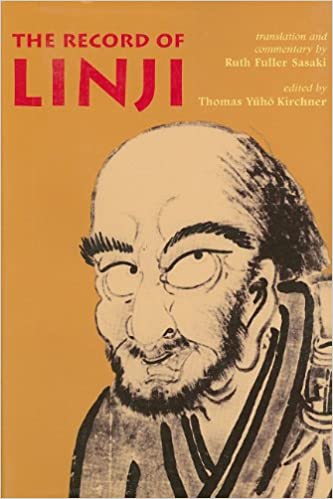
![]()
M
Modern and Contemporary Koans, Questions, One-Liners
"When does the banana you are eating stop being a banana?" - Stephen Batchelor
"The clerk offers you a 10% discount if you are a Christian. What will you say?" - Michael P. Garofalo
"Where does your bottom end and the seat of the chair begin." - Stephen Batchelor
"What is the sound of two hands in Jnana Mudra?" - Michael P. Garofalo
"Hundreds can perform the Taijiquan forms perfectly; but they do not grasp the essence of the art" said one old teacher.
How did he know that others did not grasp the essence during their perfect performances?" - Michael P. Garofalo
Zen Koans: Indexes, Bibliography, Research, Commentary. By Michael P. Garofalo.
N
Nothing Is Hidden: The Psychology of Zen Koans.
By Barry Magid. Wisdom Publications, 2013. 232 pages. ISBN:
978-1614290827. "In this inspiring and incisive offering, Barry Magid uses
the language of modern psychology and psychotherapy to illuminate one of
Buddhism's most powerful and often mysterious technologies: the Zen koan. What's
more, Magid also uses the koans to expand upon the insights of psychology
(especially self psychology and relational psychotherapy) and open for the
reader new perspectives on the functioning of the human mind and heart.
Nothing Is Hidden explores many rich themes, including facing impermanence
and the inevitability of change, working skillfully with desire and attachment,
and discovering when "surrender and submission" can be liberating and when they
shade into emotional bypassing. With a sophisticated view of the rituals and
teachings of traditional Buddhism, Magid helps us see how we sometimes subvert
meditation into just another "curative fantasy" or make compassion into a form
of masochism."
O
Odes to a Classic Hundred Standards by Xuedou Zhongxian
Opening a Mountain: Koans of the Zen Masters. By Steven Heine. Introduction and detailed commentaries, Extensive Notes. List of Teachers of Koans. Oxford University Press, 2001, 200 pages. VSCL, Paperback. 60 Koan Collection.
Opening a Mountain was compiled, translated, commented on, and documented by Professor Steven Heine in 2001.
Indexing by Michael P. Garofalo in 2023.
Subject Index to the 60 Koans in Opening a Mountain (OM). First Draft, July 10, 2023, 17 Pages, PDF.
Alphabetical List of the 60 Koans in Opening a Mountain (OM). First Draft, July 10, 2023, 3 Pages, PDF.
Case Number List of the 60 Koans in Opening a Mountain (OM). First Draft, July 10, 2023, 3 Pages, PDF.
Buddhism: Bibliography, Links, Information, Resources. Compiled by Michael P. Garofalo.
Subject Index to 3,855 Lessons from Zen Buddhists, Solitary Taoists, and Stoics
Subject Index to 1,975 Zen Buddhist Koans
Keys to Zen Buddhist Koans Database Collection
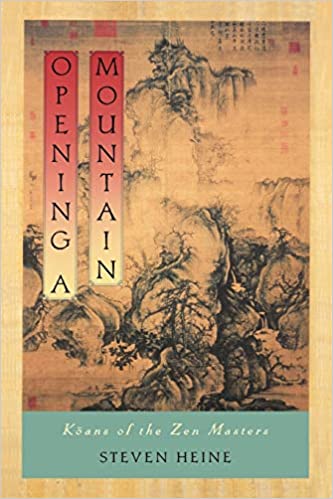
![]()
P
Pacific Zen Institute (PZI) in Santa Rosa, California. Extensive website with strong emphasis on using Koans.
Passing Through the Gateless Barrier: Koan Practice for Real Life. By Guo Gu. Shambhala, 2016, 440 pages. VSCL, Paperback.
A Philosopher Opens Three Old Doors: Daoist, Zen Buddhist, and Hatha Yoga. Philsophy, Somatic Practices, Arts, Ethics, and Mysticism. By Michael P. Garofalo.
By Michael P. Garofalo
Notes, Comments, Links, Books, Miscellaneous, Insights, Observations
Subject Index to 3,855 Lessons from Zen Buddhists, Solitary Taoists, and Stoics
Subject Index to 1,975 Zen Buddhist Koans
Subject Index to 1,546 Taoist Lessons, Chapters, Stories
Subject Index to 813 Stoic Lessons, Discourses, and Letters
Keys to Zen Buddhist Koans Database Collection
Pulling Onions. Over 1,043 One-LIne Sayings. By Michael P. Garofalo. Sayings, aphorisms, jokes, reminders, insights, gardening metaphors.
Buddhism: Bibliography, Links, Information, Resources. Compiled by Michael P. Garofalo.
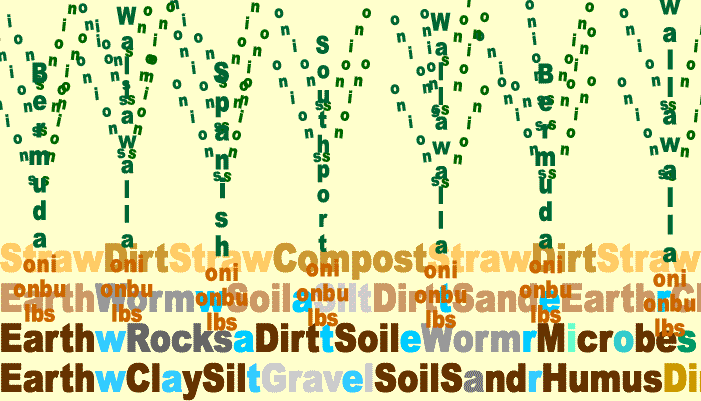
"Onion Garden;" A Concrete Poem by Michael P. Garofalo
Q
Quotes for Gardeners. Over 3,800 quotations arranged by 250 Topics/Subjects. Mostly Ad Free! Compiled by Michael P. Garofalo back before 2005.
Koans: Quotations, Comments, Insights, Definitions, Explanations.
Buddhism: Bibliography, Links, Information, Resources. Compiled by Michael P. Garofalo.
Reading Zen Buddhist literature, translations, commentaries, books, audio recordings, essays, blog posts, and web pages have kept me busy and interested from 1961-2023. I was attracted to the Zen Buddhist non-Christian views on life's meaning, the reduction of emphasis upon supernatural beings and theological explanations, the focus on a kind of phenomenological view of things as they are, the interface with haiku and imagist poetry, the ethical aspects of Buddhist thought, nature mysticism, simplicity, the finality of death and lack of belief in an eternal self-soul, Indian, Chinese and Japanese culture, history and philosophy, the amazement of being alive, and a down to earth and practical attitude.
Record of the Empty Hall 100 Koans (REH)
The Record of Empty Hall: One Hundred Classic Koans. Translated with commentary by Dosho Port. Shambhala, 2021, 287 pages. Biographical Notes, General Notes, Reading List. VSCL, Paperback.
The Record of the Empty Hall was compiled, copied, and shared by Zen Buddhist Abbott Xutang Zhiyu (1185-1269 CE).
Indexing by Michael P. Garofalo in 2023.
Subject Index to the 100 Koans in the Record of the Empty Hall (REH). First Draft, July 6, 2023, 21 Pages, PDF.
Alphabetical List of 100 Koan Cases in the Record of the Empty Hall (REH). First Draft, July 6, 2023, 4 Pages, PDF.
Case Number List of 100 Koan Cases in the Record of the Empty Hall (REG). First Draft, July 6, 2023, 4 Pages PDF.
Subject Index to 1,975 Zen Buddhist Koans
Keys to Zen Buddhist Koans Database Collection
Buddhism: Bibliography, Links, Information, Resources. Compiled by Michael P. Garofalo.
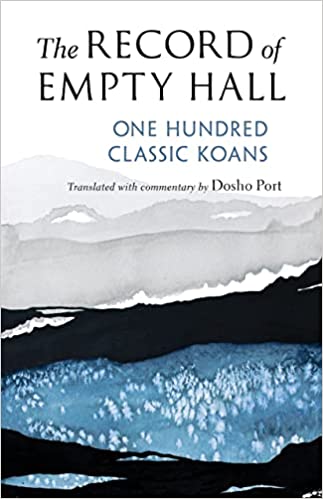
![]()
Reference Texts for Brief Spiritual Lessons Database Project
Riddles, Paradoxes, Puzzles (RID)
Riddles, Paradoxes, Puzzles. Compiled by Michael P. Garofalo. Over 415 Riddles. No Advertising. Links, Bibliography, Sources, Research.
Rinzai (Linji) Zen Buddhist School
A Philosopher Opens Three Old Doors: Daoist, Zen Buddhist, and Hatha Yoga. Philsophy, Somatic Practices, Arts, Ethics, and Mysticism. By Michael P. Garofalo.
Art: Calligraphy, Painting, Landscape Gardening, Pottery, Metalworking, Tea Ceremony, Dance, Bonsai, Theatre, Photography
Hakuin Ekaku (1686-1769) Zen Master Japan Author
Hidden Zen: Practices for Sudden Awakening and Embodied Realization. By Meido Moore. Shambhala, 2020, 320 pages. Notes, glossary. VSCL, Paperback.
Internal Martial Arts Training: Tai Chi Chuan, Hsing I, Bagua Zhang
Introduction to Zen Training: A Physical Approach to Meditation and Mind-Body Training. By Omori Sogen. Introduction by Trevor Leggett. Foreword by Sayama Daian and Michael Kangen. Tuttle, 2020, 288 pages. Index, glossary, lineage charts. Published in Japanese in 1964, and in English in 1996. Many intersting photographs. VSCL, Paperback.
Omori Sogen (1904-1994) Japanese Rinzai Master. "Ōmori Sōgen (大森 曹玄, 1904–1994) was a Japanese Rinzai Rōshi, a successor in the Tenryū-ji line of Rinzai Zen, and former president of Hanazono University, the Rinzai university in Kyoto, Japan. He became a priest in 1945. Ōmori Sōgen was a teacher of Kashima Shinden Jikishinkage-ryū swordsmanship, and a calligrapher in the Taishi school of Yamaoka Tesshū. He became well known for his unique approach to Zen practice integrating insights from his martial and fine arts training with traditional Zen methods; this approach has been described as a unity of Zen, Ken ("sword", referring to martial arts or physical culture), and Sho ("brush", referring to calligraphy or fine arts). He was a Japanese right-wing ultra-nationalist before World War II.
Omori Sogen: Zen Ken Sho (Zazen Practice, Body-Mind Physical Disciplines, and Artistic Creativity)
Qigong, Neigong, Yoga Training
Buddhism: Bibliography, Links, Information, Resources. Compiled by Michael P. Garofalo.
The Record of Linji. Edited by Thomas Yuho Kirchner. Translation and commentary by Ruth Fuller Sasaki. Nazan Library of Asian Religion and Culrture #20. Linji Yixuan (died 866 CE). University of Hawaii Press, 2009, 485 pages. VSCL, Paperback.
Subject Index to 1,975 Zen Buddhist Koans
The Fireplace Records
By Michael P. Garofalo
Rinzai Zen Buddhist School See Also Blue Cliff Record, Gateless Barrier, Sutherland Roshi, Yamada Roshi, Wick Roshi, Tarrant Roshi, etc.
Zen Koans: Indexes, Bibliography, Research, Commentary. By Michael P. Garofalo.
The Rinzai Zen Way: A Guide to Practice. By Meido Moore. Shambhala, 2018, 244 pages. Index, bibliography, glossary, notes. VSCL, Paperback.
The Rinzai Zen Way: A Guide to Practice. By Meido Moore. Free Online, PDF.
Way of Zen. By Alan Watts
Zen and Japanese Culutre. By D. T. Suzuki.
S
Samurai Zen: The 100 Warrior Koans (SAM)
Samurai Zen: The Warrior Koans. By Trevor Leggett - Translation, Commentary, Introduction. 100 Koans. Routledge, 2003, Second Edition 218 pages. Trevor Pryce Leggett (1914-2000). VSCL, Paperback. 100 Koans.
Compiled, copied, and shared by Zen Abbott Daikaku in 1543 CE in Japan.
Indexing by Michael P. Garofalo in 2023.
Subject Index for the 100 Cases in Samurai Zen (SAM).. First Draft, June 23, 2023, PDF, 25 Pages.
Numerical List of the 100 Cases in Samurai Zen (SAM). First Draft, June 23, 2023, SAM, PDF, 4 Pages.
Alphabetical List of the 100 Cases in Samurai Zen (SAM). First Draft, June 23, 2023, SAM, PDF, 4 Pages.
Subject Index to 3,855 Lessons from Zen Buddhists, Solitary Daoists, and Stoics
Subject Index to 1,975 Zen Buddhist Koans
Keys to Zen Buddhist Koans Database Collection
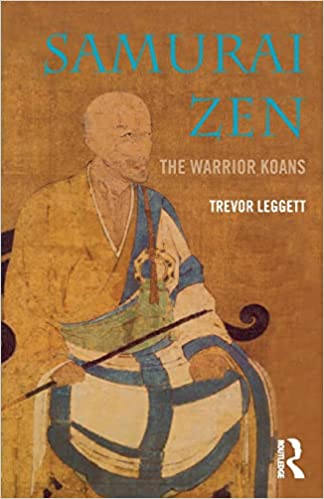
Secrets of the Blue Cliff Record: Zen Comments by Hakuin and Tenkei.
Translated by Thomas Cleary. Boston, Shambhala, 2002. Introduction,
recommended reading, 354 pages. ISBN: 1570629129. "Hakuin
Ekaku (白隠
慧鶴?,
January 19, 1686 - January 18, 1768) was one of the most influential
figures in Japanese
Zen
Buddhism.
He is regarded as the reviver of the
Rinzai school from a moribund period of stagnation, refocusing it on its
traditionally rigorous training methods integrating
meditation
and
koan practice.'
The Shamanic Bones of Zen: Revealing the Ancestral Spirit and Mystical Heart of a Sacred Tradition. By Zenju Earthly Manuel. Foreword by Paula Arai. Shambhala, 192 pages, 2022. VSCL, Paperback.
Shifu Miao
Zhang Points the Way By Mike Garofalo.
Buddhism: Bibliography, Links, Information, Resources. Compiled by Michael P. Garofalo.
Sitting with Koans: Essential Writings on Zen Koan Introspection. Edited by John Daido Loori. Introduction by Tom Kirchner. Wisdom Publications, 2005, 368 pages. VSCL - Used paperback.
The Sound of One Hand: 148 Zen Koans with Answers. Translation, research and commentary by Joel Hoffmann. Introduction by Dror Burstein. NRYB, 2016, 304 pages. VSCL, Paperback.
There are 144 koan cases, starting on page 75. The full text for each case is followed by possible acceptable answers or responses to the koan. The first 74 pages are very brief questions and answers regarding 137 other cases, without the full text for each case. Therefore, the total cases discussed are 281 koan cases. I have indexed only 148 Cases.
Indexed by Michael P. Garofalo.
Subject Index to the Sound of One Hand 148 Koans. PDF, 10/26/2023, 30 pages.
Case Number List to the Sound of One Hand 148 Koans. PDF, 10/26/2023, 6 pages.
Case Title List to the Sound of One Hand 148 Koans. PDF, 10/26/2023, 6 pages.
Subject Index to 1,975 Zen Buddhist Koans
Keys to Zen Buddhist Koans Database Collection
Buddhism: Bibliography, Links, Information, Resources. Compiled by Michael P. Garofalo.
Taoism: Bibliography, Links, Resources, Information. Compiled by Michael P. Garofalo.
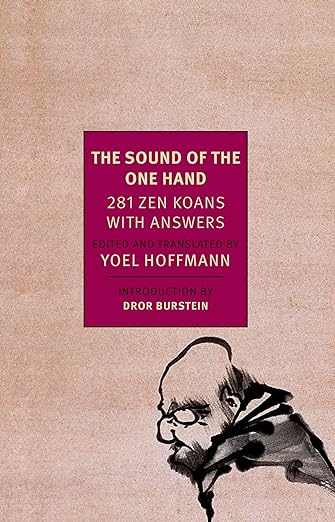
![]()
Sparks: Brief Spiritual Stories, Dialogues, and Encounters
Matches to Start the Kindling of Insight
May the
Light Your Inner Fireplace Help All Beings
Zen Buddhist Koan Collections
Catching Phrases, Inspiring Verses, Hard Questions
Bibliography, Quotations, Notes, Resources
Research by Michael P. Garofalo
Staff, Cane, Jo, Cane, Stick By Michael P. Garofalo.
Stone and Sand Collection of Koans. From Zen Master Muju from 1275 CE.
Sutras for Daily Recitation/Chanting
Straight to the Heart of Zen: Eleven Classic Koans and Their Inner Meanings.
By Philip Kapleau. Boston, Shambhala, 2001. 192 pages. ISBN:
9781570625930.
S
Subject Index to Over 3,855 Lessons from Zen Buddhists, Solitary Taoists, and Stoics
Subject Index to 1,975 Zen Buddhist Koans
Subject Index to Zen Buddhist and Taoist Literature
Subject Index to 1,546 Taoist Lessons, Chapters, Stories
Subject Index to 813 Stoic Lessons, Discourses, and Letters
Keys to Zen Buddhist Koans Database Collection
Subject Index to 1,975 Zen Buddhist Koans
Indexing by Michael P. Garofalo
Seventh Version, Ocotober 9, 2023. Updated Monthly. PDF, 465 Pages.
Green Way Research, Vancouver, Washington
Zen Buddhist Koans and Information:
https://www.egreenway.com/buddhism/koansdup1.htm
Subject Index to 1,975 Zen Buddhist Koans
Keys to Zen Buddhist Koans Database Collections
Brief Spiritual Lessons and Koans Project Homepage PDF
Keys to Zen Buddhist Koans Database Collection
PDF files are searchable. Use the keyboard strokes: Ctrl + F This will open the Search or Find box.
Cases = Buddhist brief spiritual lessons, Koans, dialogues, puzzles, wisdom tales, Chan/Taoist teaching, Lore, Fables, Records
Chapters = Taoist brief spiritual lessons, classic Daoist spiritual literature, tales, fables, lectures, expositions.
Internet
Links in PDF Files are clickable/searchable.
![]()
Sutherland, Joan Roshi Cloud Dragon: The Joan Sutherland Dharma Works
Joan Sutherland Roshi Koan Collections
Gates: Miscellaneous Koans Joan Sutherland Roshi
Gateless Gateway Joan Sutherland Roshi
The Blue Cliff Record Joan Sutherland and John Tarrant
Buddhism: Bibliography, Links, Information, Resources. Compiled by Michael P. Garofalo.
Taoism: Bibliography, Links, Resources, Information. Compiled by Michael P. Garofalo.
S
Daisetsu Teitaro Suzuki Books (SUZ)
Suzuki, Daisetsu Teitaro Suzuki,
D. T. Suzuki, 1870-1966.
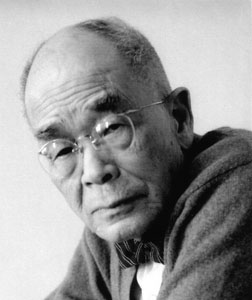

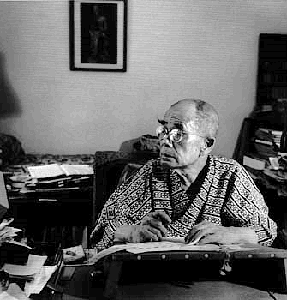
Subject Index to D. T. Suzuki's Books and Essays. Indexing by Michael P. Garofalo. First Draft, November, 19, 2023. PDF, 24 pages.
Keys to Zen Buddhist Koans Database Collection
Essays in Zen Buddhism, First Series
By D.T. Suzuki, 1870-1966. Daisetsu Teitaro Suzuki.
Foreword by Christmas Humphreys. York Beach, Maine, Samuel Weiser, Inc.,
1950, 1985. Index, 388 pages. ISBN: 0877285861.
Essays on Enlightenment, Zen history, Satori, practical methods, meditation
hall, and the Ten Ox Herding Pictures. VSCL. (SUZA)
Essays in Zen Buddhism: Second Series
By D.T. Suzuki, 1870-1966. Daisetsu Teitaro Suzuki.
Foreword by Christmas Humphreys. York Beach, Maine, Samuel Weiser, Inc.,
1953, 1985. Index, 367 pages. ISBN: 0877280754. Essays on koans, Bodhidhama, and passivity in Buddhist life. VSCL. (SUZB)
Essays in Zen Buddhism:
Third Series
By D.T. Suzuki, 1870-1966. Daisetsu Teitaro Suzuki.
Foreword by Christmas Humphreys. York Beach, Maine, Samuel Weiser, Inc.,
1953, 1985. Index, 396 pages. ISBN: 0877280762.
Essays on Chinese Zen, Bodhisattva ideal, and the Prajnaparamita. VSCL. (SUZC)
The Field of Zen. By D.T. Suzuki, 1870-1966. Edited with a Foreword by Christmas Humphreys. Harper and Row, Perennial, 1969, index, 105 pages. VSCL. (SUZD)
An Introduction to Zen Buddhism. By D.T. Suzuki. 136 pages, 2014. (SUZE)
Manual of Zen Buddhism. By D.T. Suzuki. 139 pages. VSCL, Kindle E Book. (SUZF)
Mysticism: Christian and Buddhist. By D.T. Suzuki. 200 Pages. (SUZG)
Zen and Japanese Culture By D.T. Suzuki. Princeton, 1959. Bollingen Series, #64. Index, 478 pages. VSCL. (SUZH)
Zen Buddhism: Selected Writings of D.T. Suzuki. Edited by William Barrett. Doubleday, 1956, 1996, 369 pages. VSCL, Paperback. (SUZI)
The Zen Doctrine of No Mind: The Significance of the Sutra of Hui-Neng
(Wei-lang).
By D.T. Suzuki. Edited by Christmas Humphreys. Boston, Weiser
Books, 1969, 1972. Index, 160 pages. ISBN: 0877281823. VSCL. (SUZJ)
The Awakening of Zen. By D. T. Suzuki. Shambhala Dragon Editions, 2000, 136 pages. VSCL, Paperback. (SUZK)
The Zen Doctrine of No Mind: The Significance of the Sutra of Hui-Neng
(Wei-lang). By D.T. Suzuki.
Beyond Zen: D. T. Suzuki and the Modern Transformaton of Buddhism. Edited by John Breen, Sueki Fumihiko, and Yanada Shoji. University of Hawaii Press, 2023, 322 pages.
Books by D.T. Suzuki on Amazon
Information about D.T. Suzuki's Life (1870-1966)
The Outlines of Mahayana Buddhism. By D.T. Suzuki. Schocken Books, 1963.
Selected Works of D.T. Suzuki, Volume II: Pure Land. Edited by James C. Dobbins. University of California Press, 2015, 336 pages.
The Training of the Zen Buddhist Monk. By D.T. Suzuki. Illustrated by Zenchu Sato. Cosimo, 2004, 180 pages.
The Zen Buddhist Philosophy of D. T. Suzuki: Strengths, Foibles, Intrigues, and Precision. By Rossa O Muireartaigh, Georgina Stewart, et al. Bloomsbury, 2022, 192 pages.
A Zen Life: D.T. Suzuki Remembered. By Masao Abe. Weatherhill, 1995, 225 pages. VSCL, Paperback.
Buddhism: Bibliography, Links, Information, Resources. Compiled by Michael P. Garofalo.
Subject Index to 3,855 Lessons from Zen Buddhists, Solitary Taoists, and Stoics
Subject Index to 1,975 Zen Buddhist Koans
T
Tales From the Tao. The Wisdom of the Taoist Masters. By Solala Towler. Watkins, 2005, 2017, 191 pages. VSCL, Paperback.
Taoism: Subject Index to Taoist and Zen Buddhist Literature
Taoism Daoism SEE ABOVE Daoism
Tarrant, John Pacific Zen Institute
Brief Spiritual Lessons Database Project 2023-2025
English Language Texts
Taoism, Chan Buddhism, Zen Buddhism, Stoics, Philosophers
China, Japan, and the Pacific West Coast of the USA
Text Authority
The Blue Cliff Record BCR 100 Cases Buddhist
The Blue Cliff Record, Translated with commentary and notes by Thomas Cleary and J. C. Cleary. Foreword by Taizan Maezumi Roshi. Shambhala, Boulder Colorado, 1977, 2005, 648 pages. ISBN: 978-1-59030-232-3. VSCL, Paperback.
Book of Serenity BOS Book of Tranquility 100 Cases Buddhist
The Book of Serenity: One Hundred Zen Dialogues. Translated with commentary by Thomas Cleary, 2005, 512 pages.
Chuang Tzu, Zuangzi, ZHUA 33 Chapters Taoist
Wandering on the Way: Early Taoist Tales and Parables of Chuang Tzu. Translation by Victor H. Mair. Bantam, 1994, 402 pagse.
Dao De Jing, Tao Te Ching TTJ 81 One-Page Chapters/Lessons Taoist
Tao Te Ching Website Compiled and Indexed by Michael P. Garofalo, Green Way Research, 2014.
Dogen's Shinji Mana Shobogenzo Koan Collection DSMS 301 Cases Buddhist
The True Dharma Eye: Zen Master Dōgen's Three Hundred Koans. Translated by Kazuaki Tanahashi and John Daido Loori.
Shambhala, 2005, 472 pages.
Dogen's Shobogenzo, DSE 95 Essays Buddhist
Shobogenzo by Master Dogen. Translated by Gudo Nishijima and Chodo Cross. Windbell, 1994, 340 pages.
Entangling Vines, ENT 272 Koan Cases Buddhist
Entangling Vines: A Classic Collection of Zen Koans.
Translated and annotated by Thomas Yūhō Kirchner.
Foreword by Nelson Foster.
Introduction by Ueda Shizuteru. Boston,
Wisdom Publications, 2013, 340 pages.
Fireplace Records TFR 25 Cases Philosopher
The Fireplace Records by Michael P. Garofalo, 2023, 30 Chapters
Gateless Gate GB Gateless Barrier 48 Cases Buddhist
The Gateless Gate: The Classic Book of Zen Koans. Translated with commentary and notes by Koun Yamada Roshi. Wisdom Publications, Somerville, MA, 2004, 2015, 301 pages. Numberous Appendices, Japanese-Chinese Name List, Essays. ISBN:978-0-86171-382-0. VSCL, Paperback.
I Ching Yijing HEX 64 Hexagrams Taoist
The Complete I Ching. By Taoist Master Alfred Huang. Inner Traditions, 1998, 2010, 542 pages.
Lunar Tao, TLT 150 Chinese Seasonal Activities Events Customs Taoist
The Lunar Tao: Meditations in Harmony with the Seasons. By Deng Ming-Dao, Harper One, 2013, 429 pages.
Record of Empty Hall, REH, 100 Koans Buddhist
The Record of Empty Hall: One Hundred Classic Koans. Translated with commentary by Dosho Port. Shambhala, 2021, 320 pages.
Tales from the Tao, TFTO 31 Chapters Taoism
Tales from the Tao. By Solala Towler. Watkins, 2005, 2017, 191 pages.
365 Tao DMD 365 One-Page Meditations/Lessons Taoist
365 Tao: Daily Meditations. By Deng Ming-Dao. Harper One, 1992, 400 pages. 365 One-Page Meditations/Cases
Transmission of Light TOL 53 Biographies Buddhist
Transmission of Light: Zen in the Art of Enlightenment. Author: Keizan. Translated by Thomas Cleary, Shambhala, 1990, 207 pages.
Vegetable Roots Discourse VRD 346 Prose Poems Confucian-Buddhist-Taoist
The Unencumbered Spirit: Reflections of a Chinese Sage. By Hung Yi-ming. Translated by William Scott Wilson. Foreword by Bill Porter. Kodansha International,, 2009, 223 pages. Afterword, notes, bibliography. VSCL, Hardbound.
Wen-Tzu, WEN, 180 Chapters/Lessons Taoist
Wen-Tzu: Understanding the Mysteries. Author Lao Tzu. Translated by Thomas Cleary. Shambhala, 1992, 208 pages.
The Whole World is a Single Flower. WWSF By Zen Master Seung Sahn. 365 Kong-ans for Everyday Life with Questions and Commentary. Edited by Jane McLaughlin and Paul Muenzen. Foreword by Stephen Mitchell. Primary Point Press, Kwan Um School of Zen, Cumberland Rhode Island, 1992, Third Edition 2014, 244 pages. ISBN: 978-0-942795-17-2. VSCL, Paperback.
Zen Echoes: Classic Koans with Verse Commentaries by Three Female Chan Masters. ZE Translated, edited, and introduction by Beata Grant. Foreword by Susan Moon. Wisdom, 2017, 176 pages.
Zen Master Raven: The Teachings of a Wise Old Bird. ZMR Compiled and annotated by Robert Aitken. Illustrated by Jennifer Rain Crosby. Foreword by Nelson Foster. Wisdom, 2002, 2017, 229 pages. VSCL, Hardbound. 208 Brief Koans.
Taoism: Bibliography, Links, Resources, Information. Compiled by Michael P. Garofalo.
Indexing by Michael P. Garofalo
Green Way Research, Vancouver, Washington
Indexing: Books, Resources, References, Research, Tools
![]()
How to Practice Zen Koans By John Tarrant: "Don't try to hard. You show up. Trust what you don't know. Experiment. The koan can be your friend. Any part of the koan is all the koan. You don't need a special state of mind. Have confidence in yourself."
Bring Me the Rhinoceros: And Other Zen Koans That Will Save Your Life.
By John Tarrant. Boston, Shambhala, 2008. Notes, 194 pages.
Through Forests of Every Color: Awakening with Koans. By Joan Sutherland. Shambhala, 2022, 208 pages. VSCL, Paperbound.
Timeline of Zen Buddhist Development in America
Taoism: Tao Te
Ching, Bibliography, Resources, Indexes, Commentary. By Mike Garofalo.
Toward a Psychology of Awakening: Buddhism, Psychotherapy, and the Path of Personal and Spiritual Transformation.
By John Welwood, Pd.D. Boston, Shambhala, 2002. Index, bibliography,
glossary, notes, 352 pages. ISBN:
1570628238.
Transmission of Light, Keizan Biographies (TOL)
Transmission of Light (TOL)
53 Biographies of Buddhist Patriarchs, Leaders, Legends, Thinkers, Famous Ones
Written by Zen Master Keizan (1268-1325). Title: Denkoroku.
Indexed by Michael P. Garofalo. First Draft on March 30, 2023.
Source for Biographies: Transmission of Light: Zen in the Art of Enlightenment. Translated by Thomas Cleary, 1990, 207 pages.
Subject Index to the 53 Biographies in the Transmission of Light (TOL) Collection. PDF, 3 pages.
Alphabetical List of the 53 Biographies in the Transmission of Light (TOL) Collection. PDF, 3 pages.
List of 53 Biography Cases by Case Numbers in the Transmission of Light (TOL) Collection. PDF, 2 pages.
Subject Index to 3,855 Lessons from Zen Buddhists, Solitary Taoists, and Stoics
Subject Index to 1,975 Zen Buddhist Koans
Keys to Zen Buddhist Koans Database Collection
Books I Use in My Research and Study of Koan Collections
Buddhism: Bibliography, Links, Information, Resources. Compiled by Michael P. Garofalo.
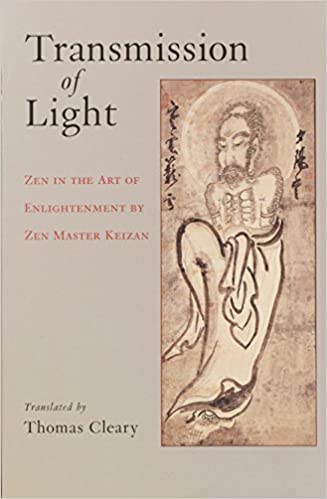
![]()
The Transparency of Things: Contemplating the Nature of Experience. By Rupert Spira. Sahaja Pub., 2008, 243 pages. No index, no bibliography, no notes. VSCL, Paperback.
Awakening the Other Way: Non-Duality and Existential Reason. By Marcel Eschauzier. Unlock Tao, 2023, 144 pages. VSCL, Paperback.
Advaita Vedanta Books at Amazon
Taoism: Bibliography, Links, Resources, Information. Compiled by Michael P. Garofalo.
Stoicism: Bibliography, Resources, Quotations, Links, Information. By Michael P. Garofalo.
The True Dharma Eye: Zen Master Dōgen's Three Hundred Koans.
Translated by Kazuaki Tanahashi and John Daido Loori. Commentary and verse by John Daido Loori.
Boston, Shambhala, 2009. Index of koans, glossary, biographical, lineage
charts, notes, 540 pages. ISBN: 978-1590302427.
"When the thirteenth century master Eihei Dogen, one of the most influential
thinkers in Zen Buddhism and founder of the Japanese Soto school, returned to
Japan after four years of study in China, the fruit of his pilgrimage was
recorded in a collection of koans called the Chinese Shobogenzo, also
known as Shinji or Mana Shobogenzo. This collection of three
hundred main cases was first published in 1766 under the title Shobogenzo
Sambyakusoku (Treasury of the True Dharma Eye: Three Hundred Cases)." VSCL, Paperback.
Two Arrows Meeting in Mid-Air:
The Zen Koan.
By John Daido Loori. Tuttle Publishing, 1994. 392 pages. ISBN:
978-0804830126.
Two Zen Classics: Mumonkan and Hekiganroku.
Translated with commentaries by Katsuki Sekida. Edited and introduced by
A. V. Grimstone. New York, Weatherhill, 1977. Index, 413 pages.
ISBN: 0834801302. VSCL.
Unlocking the Zen Koan: A New Translation of the Zen Classic Wumenguam.
Translated by Thomas Cleary. Berkeley, California, North Atlantic Books,
1993, 1997. 213 pages. ISBN: 978-1556432477.
V
Vegetable Root Discourse (VRD)
Text Authority for Indexing:
The Unencumbered Spirit: Reflections of a Chinese Sage. By Hung Yi-ming. Translated by William Scott Wilson. Foreword by Bill Porter. Kodansha International,, 2009, 223 pages. Afterword, notes, bibliography. VSCL, Hardbound.
Each "Discourse" or "Observation" or "Reminder" in the Vegetable Roots Discourse (Vegetable Roots) is a prose-poem of two to six sentences, depending upon the translation. Each prose-poem "Discourse" is not given a subtitle, they are just numbered in sequence in Two Books. I have chosen to give each Discouse a subtitle for database organizational purposes.
Indexing by Michael P. Garofalo
Subject Index to the Vegetable Root Discourses. PDF, First Draft, October 30, 2023, 55 pages.
Case Number Index to the Vegetable Root Discourses. PDF, First Draft, October 30, 2023, 55 pages.
Case Title Index to the Vegetable Root Discourses. PDF, First Draft, October 30, 2023, 55 pages.
The Unencumbered Spirit: Reflections of a Chinese Sage. By Hung Yi-ming. Translated by William Scott Wilson. Foreword by Bill Porter. Kodansha International,, 2009, 223 pages. Afterword, notes, bibliography. VSCL, Hardbound.
"We know almost nothing of Hung Ying-ming, except that he lived around the end of the Ming dynasty (1368-1644) and that he was extraordinarily well-read and cultured. The Unencumbered Spirit is his classic work, a tour de force offering wise words distilled through the fundamental teachings of Taoism, Confucianism and Zen Buddhism. Hung's poetic prose embodies the infinite transformations of the world's opposites, what the Chinese called yin and yang--good and evil, honesty and deception, wisdom and foolishness, heaven and hell.
Wise, profound, spiritual, humorous, witty, and timeless, The Unencumbered Spirit is, in short, a book about putting greed and competition aside, about getting at the true, clear essence of things, free of distractions and encumbrances. It is a book about living without stuff, whether it be material, psychological, or spiritual. About living with simplicity and awareness. It has been rare for one person to develop a thorough grasp of Taoism, Confucianism and Buddhism, such is their profundity. But there have been a few. Among them, one person's work stands above the rest: namely, Hung Ying-ming's The Unencumbered Spirit. I can recommend this work to anyone interested in the way of the world's greatest sages, whose teachings can help us all to see into and to improve our own lives." Bill Porter (aka Red Pine), from the Foreword."
Master of the Three Ways. Reflections of a Chinese Sage on Living a Satisfying Life. By Hung Yi-ming. Translated by William Scott Wilson. Foreword by Red Pine. Shambhala, 2012, 196 pages, Notes, Bibliography. VSCL, Paperback.
Vegetable Roots Discourse: Wisdom from Ming China on Life and Living. Caigentan By Hong Zicheng (Hung Tzu-ch'eng). Translated, introduction, and notes by Robert Aitken. Translation and Afterword by Daniel W. K. Kwok (pp.165-224), brief glossary, bibliography, notes, Pinyin to Wade-Giles glossary. Counterpoint, 2006, 224 pages. VSCL, Paperback.
"Written 400 years ago by a scholar in the Ming Dynasty, one hundred years after Columbus and around the time Shakespeare completed Henry VI, accomplished scholar and philosopher Hong Zicheng retired from public life and settled down to write an informal compilation of his thoughts on the essence of life, human nature, and heaven and earth. Though he wrote other books as well, only this one has survived—thanks largely to its continuous popularity, first in China and later in Japan and Korea. Entitled Caigentan (Vegetable Roots Discourse), this book has been studied and cherished for four hundred years. Terse, humorous, witty, and. above all, timely, this book offers a provocative and personal mix of Daoist, Buddhist, and Confucian understanding. It contains 360 observations that lead us through paths as complex, absurd, and grotesque as life itself. While it has been translated into many languages, this comprehensive version will immediately become the standard edition for generations of English readers to come."
Back to Beginnings: Reflection on the Tao by Huanchu Daoren. Translated by Thomas Cleary. Boston and London, Shambhala Publications, 1990.
The Roots of Wisdom: Saikontan by Hung Ying-ming. Translated by William Scott Wilson. New York, Koaansha International, 1985.
Tending the Roots of Wisdom. Annotated by Han Zhong. Bejing, New World Press, 2000.
Buddhism: Bibliography, Links, Information, Resources. Compiled by Michael P. Garofalo.
Taoism: Bibliography, Links, Resources, Information. Compiled by Michael P. Garofalo.
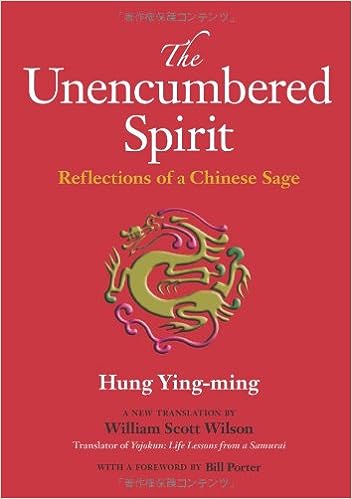
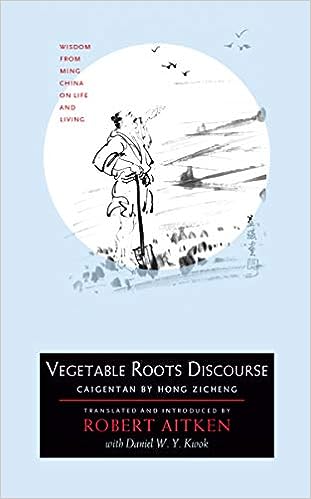
![]()
VSCL Valley Spirit Center Library. The personal library of Michael P. Garofalo.
Books I Use in My Research and Study of Zen Koan Collections
Subject Index to 1,975 Zen Buddhist Koans
Keys to Zen Buddhist Koans Database Collection
W
I began reading books about Buddhism, and
books written by Alan Watts (1915-1973) in 1960. I borrowed
many books from our local Los Angeles County Public Libraries. I enjoyed
studying books by D. T. Suzuki, Alan Watts, R.H. Blyth, Paul Reps, Buddhist
Scriptures, Robert Aitken, and many others. I attended two lectures by Alan Watts while a college student. I own digital audio versions of most of his recorded lectures. The key of VSCL means these books are now
(2023) in my home library.
"Alan Wilson Watts (6 January 1915 - 16 November 1973)
was a British writer and speaker known for interpreting and popularising Buddhism, Taoism,
and Hinduism for
a Western audience. Born in Chislehurst,
England, he moved to the United States in 1938 and began Zen training
in New York. He received a master's degree in theology from Seabury-Western
Theological Seminary and became an Episcopal priest
in 1945. He left the ministry in 1950 and moved to California,
where he joined the faculty of the American
Academy of Asian Studies. Watts gained a following while working as a volunteer programmer at the KPFA radio
station in Berkeley.
He wrote more than 25 books and articles on religion and philosophy, introducing
the emerging hippie
counterculture to The
Way of Zen (1957), one of the first bestselling books on Buddhism.
In Psychotherapy East and West (1961), he argued that Buddhism could be thought
of as a form of psychotherapy.
He considered Nature, Man and Woman (1958) to be, "from a literary point of
view, the best book I have ever written". He
also explored human consciousness and psychedelics in
works such as "The New Alchemy" (1958) and The Joyous Cosmology (1962)."
- Alan Watts, Wikipedia
Text Authority: See the Books Listed Below.
Subject Index to the Books by Alan Watts. PDF, October 20, 2024, 35 pages. Indexing by Michael P. Garofalo.
Subject Index to 1,975 Zen Buddhist Koans
Keys to Zen Buddhist Koans Database Collections
Each Key to the Specific Book (WATA - WATS) is followed by the page number in the book,
e.g., WATB 22, WATG N 123, WATH 01.
Become What You Are. By Alan Watts. Shambhala, 1995, 2003, 132 pages,
VSCL.
Key: (WATA)
Behold the Spirit: A Study in the Necessity of Mystical Religion. By
Alan Watts. Vintage Books, 1947, 1971, 257 pages, VSCL.
Key: (WATB)
The Book: On the Taboo Against Knowing Who You Are. By Alan Watts.
Vintage, 1966, 146 pages, VSCL.
Key: (WATC)
Cloud-Hidden: Whereabouts Unknown, A Mountain Journal. By Alan Watts.
Vintage, 1968, 208 pages, VSCL.
Key: (WATD)
Does It Matter: Essays on Man's Relation to Materiality. By Alan
Watts. Vintage, 1968, 125 pages.
Key: (WATE)
Eastern Wisdom, Modern Life: Collected Talks, 1960-1969. By Alan
Watts. New World Library, 1994, 243 pages, VSCL.
Key: (WATF)
The Essential Alan Watts. Celestial Arts, 1974, 142 pages, VSCL.
Key: (WATG)
In My Own Way; An Autobiography. By Alan Watts. New World, 1972,
384 pages, VSCL.
Key: (WATH)
Just So: An Odyssey Into the Cosmic Web of Connection, Play and True Pleasure.
By Alan Watts. Sounds True, Audio CD, 2017.
Key: (WATI)
Leave It Be: Alan Watts on the Art of Meditation. Sounds True,
Audio CD, 2020.
Key: (WATJ)
The Meaning of Happiness. The Quest for Freedom of the Spirit in
Modern Psychology and the Wisdom of the East. By Alan Watts. Harper,
1940, 219 pages, VSCL.
Key: (WATK)
Nature, Man and Woman. By Alan Watts. VSCL.
Key: (WATL)
Out of Your Mind: Essential Listening from the Alan Watts Audio Archives.
Sounds True, Audio CD, 2004, VSCL.
Key: (WATM)
Out of Your Mind: Essential Listening from the Alan Watts Audio Archives.
Sounds True, Audio CD, 2004, VSCL.
Key: (WATM)
Taboo on Knowing Who You Are. By Alan Watts.
Key: (WATN)
Tao: The Watercourse Way. By Alan Watts. With the collaboration
of Al Chung-liang Huang. Pantheon, 1977, 134 pages, VSCL.
Key: (WATO)
This is It, and Other Essays of Zen and Spiritual Experience. By Alan
Watts. Vintage, 1958, 158 pages, VSCL.
Key: (WATP)
The Way of Zen. By Alan Watts. Vintage, 1999, 256 pages, VSCL.
Key: (WATQ)
The Wisdom of Insecurity: A Message for an Age of Anxiety. By Alan
Watts. Vintage, 1951, 152 pages, VSCL.
Key: (WATR)
Zen Effects: The Life of Alan Watts. By Monica Furlong. Skylight
Paths, 2001, 2012, 235 pages, VSCL.
Key: (WATS)
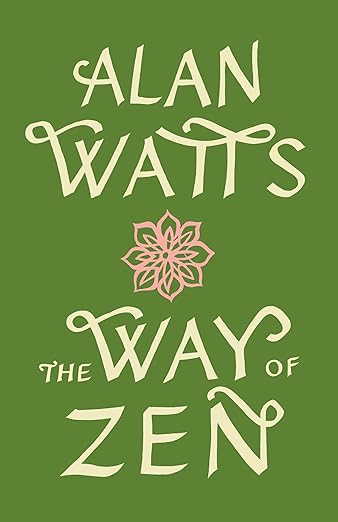
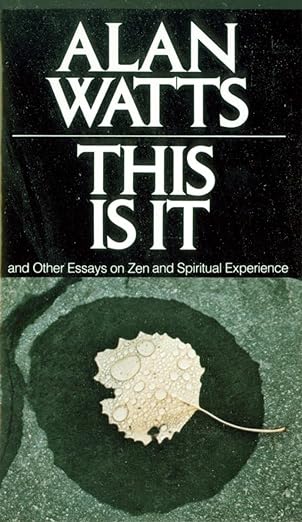
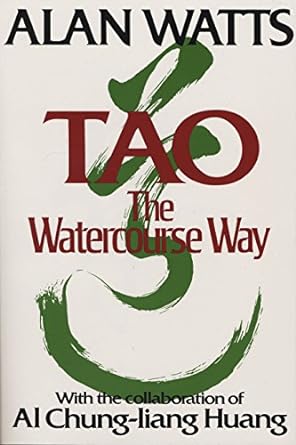
How to Live a Good Life: Advice From Wise Persons. By Mike Garofalo.
Meditation: Methods,
Quotes, Bibliography, Links. By Mike Garofalo.
Taoism: Scriptures,
Methods, Quotes, Bibliography, Links, Poetry, Lore, History. By Mike
Garofalo.
Virtue Ethics: Quotes,
Bibliography, Morality, Virtues, Positive Psychology. By Mike Garofalo.
Zen Buddhism:
Scriptures, Methods, Quotes, Poetry, Bibliography, Links, Lore, History.
By Mike Garofalo.
![]()
The Whole World is a Single Flower (WWSF)
The Whole World is a Single Flower. WWSF By Zen Master Seung Sahn (1927-2004). 365 Kong-ans for Everyday Life with Questions and Commentary. Edited by Jane McLaughlin and Paul Muenzen. Foreword by Stephen Mitchell. Primary Point Press, Kwan Um School of Zen, Cumberland Rhode Island, 1992, Third Edition 2014, 244 pages. ISBN: 978-0-942795-17-2. VSCL, Paperback.
365 Cases in The Whole World is a Single Flower (WWSF)
Indexing by Michael P. Garofalo.
Subject Index to The Whole World is a Single Flower 365 Zen Koans. PDF, Third Version, October 3, 2023, 65 Pages.
Case Number Index to The Whole World is a Single Flower 365 Zen Koans. PDF, Third Version, October 3, 2023, 13 Pages.
Case Title Index to The Whole World is a Single Flower 365 Zen Koans. PDF, Third Version, October 3, 2023, 13 Pages.
Subject Index to 1,975 Zen Buddhist Koans
Keys to Zen Buddhist Koans Database Collection
Dropping Ashes on the Buddha: The Teachings of Zen Master Seung Sahn. By Seung Sahn. Grove Press, 2007, 258 pages.
Only Don't Know: Selected Teaching Letters of Zen Master Seung Sahn. By Seung Sahn. Shambhala, 1999, 256 pages.
Ten Gates: The Kong-an Teaching of Zen Master Seung Sahn. By Seung Sahn. Shambhala, 2007, 152 pages.
Seung Sahn Biography (1927-2004) Seungshan Haengwon Koren Zen Master in the United States
Buddhism: Bibliography, Links, Information, Resources. Compiled by Michael P. Garofalo.
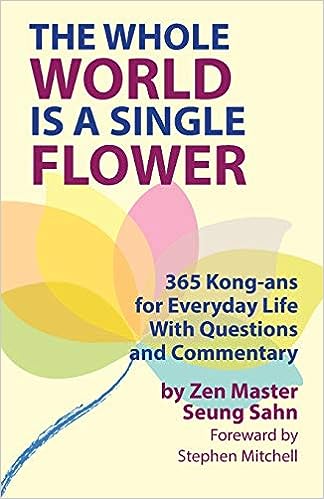
![]()
Koan - Wikipedia. An informative, long and useful article.
Z
Zen and the Ways. By Trevor Leggett. Tuttlle, 1978, 1989, 1993, 258 pages. Small print, detailed, Arts, Exercise, Zen Koans. VSCL, Paperback.
Trevor Pryce Leggett (22 August 1914–2 August 2000) was a British judo teacher, author, translator, and head of the BBC's Japanese Service for 24 years. He was one of the first Europeans to study martial arts in Japan. Leggett served in the Ministry of Information during World War II. After the war, he taught judo at the Budokwai and worked in Japanese language services at the BBC. He held the title of Shihan, and the rank of 6th dan in judo from the Kodokan. Leggett helped introduce Japanese culture to the United Kingdom, and was honoured for this by being inducted into Japan's Order of the Sacred Treasure in 1984. He also produced many works on Eastern philosophy.
Subject Index to Zen and the Ways, Kamakura Koans and Notes. PDF, August 1, 2023, 5 pages.
Subject Index to 3,855 Lessons from Zen Buddhists, Solitary Taoists, and Stoics
Subject Index to 1,975 Zen Buddhist Koans
Keys to Zen Buddhist Koans Database Collection
Buddhism: Bibliography, Links, Information, Resources. Compiled by Michael P. Garofalo.

![]()
Zen Buddhism: A
Bibliography. By Mike Garofalo.
Zen Buddhism Index: The Compass of Zen by Zen Master Seung Sahn. Compiled and Edited by Hyon Gak Sunim. Preface by Maha Ghosananda. Forward by Stephen Mitchell. Index prepared by John Holland and Ty Koontz.
Subject Index to 3,855 Lessons from Zen Buddhists, Solitary Taoists, and Stoics
Subject Index to 1,975 Zen Buddhist Koans
Subject Index to 1,546 Taoist Lessons, Chapters, Stories
Subject Index to 813 Stoic Lessons, Discourses, and Letters
Keys to Zen Buddhist Koans Database Collection
Taoism: Bibliography, Links, Resources, Information. Compiled by Michael P. Garofalo.
Zen Flesh Zen Bones: A Collection of Zen and Pre-Zen Writings.
By Paul Reps and Nyogen Senzaki. Tuttle Publishing, Flaps edition, 1957, 1985, and 1998.
First published in 1957. 211 pages. ISBN: 9780804831864. In
1961, this was the first book about Zen that I had ever read, and it greatly
impressed and influenced me. The Gateless
Gate (Mumonkan) was transcribed by Nyogen Senzaki
(1876–1958) and Paul Reps
(1895–1990) in 1934, and appeared in in "Zen Flesh, Zen Bones, 1958" pp. 109-161.
VSCL, hardbound and paperback.
The Zen Koan: Its History and Use in Rinzai Zen. By Isshu Miura and Ruth Fuller Sasaki. Harper Perennial, 1966, 176 pages. VSCL, Paperback.
Zen Koans
A satirical attack on Zen and Koans by Reinhard Koch.
Zen Koans: Indexes, Bibliography, Research, Commentary. By Michael P. Garofalo.
Zen Koans: Shaseki-shu
(Collection of Stone and Sand), written late in the thirteenth century by the
Japanese Zen teacher Muju (the "non-dweller"), and from anecdotes of Zen monks
taken from various books published in Japan around the turn of the 20th century.
Zen Sand: The Book of Capping Phrases for Koan Practice.
By Victor Sogen Hori. University of Hawaii Press, 2010. Bilingual
edition. Nanzan Library of Asian Religion and Culture. ISBN:
9780824835071.
Buddhism: Bibliography, Links, Information, Resources. Compiled by Michael P. Garofalo.
Zen's Chinese Heritage: The Masters and Their Teachings. By Andy
Ferguson. Foreword by Reb Anderson. Boston, Wisdom Publications,
2000. Glossaries, name lists, Zen lineage charty, bibliography, index, 518 pages. ISBN: 0861711637. VSCL, Paperback.
Subject Index to 1,975 Zen Buddhist Koans
Koans, Essays, Books, Lectures, Links, Information
Indexing by Michael P. Garofalo
Tenth Version, December 28, 2023. Updated Monthly. PDF, 578 Pages.
Green Way Research, Vancouver, Washington
Zen Buddhist Koans: Indexes, Information, Bibliography:
https://www.egreenway.com/buddhism/koansdup1.htm
Subject Index to 1,975 Zen Buddhist Koans
Keys to Zen Buddhist Koans Database Collections
Zen Echoes: Classic Koans with Verse Commentaries by Three Female Chan Masters. Translated, edited, and introduction by Beata Grant. Foreword by Susan Moon. Wisdom, 2017, 176 pages. VSCL, Paperback. Professor Grant teaches at Washington University in Missouri. The Zen Echoes collection was compiled by the Female/Nun Zen Master Miaozong (1095-1170 CE). 43 Koans.
Indexed by Michael P. Garofalo in 2023.
Subject Index for the 43 Koan Cases in Zen Echoes (ZE). PDF, 5/11/2023, 12 pages.
Koan Cases in Numerical Order for the 43 Koans in Zen Echoes (ZE). PDF, 5/11/2023, 2 pages.
Subject Index to 3,855 Lessons from Zen Buddhists, Solitary Taoists, and Stoics
Subject Index to 1,975 Zen Buddhist Koans
Keys to Zen Buddhist Koans Database Collection
Buddhism: Bibliography, Links, Information, Resources. Compiled by Michael P. Garofalo.
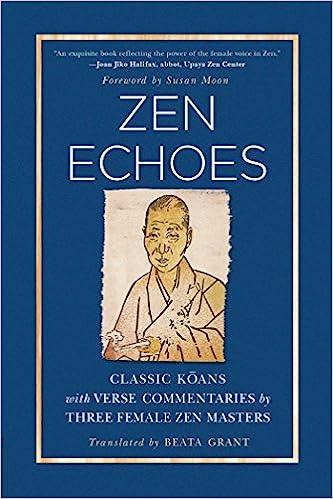
![]()
Zen Mind, Beginner's Mind. By Shunryu Suzuki. Shambhala, 1970, 2020 50th Anniversary Edition, 176 pages. VSCL, Paperback.
36 Essays/Chapters.
I also use the 2006 Edition from Shambhala. 179 pages. VSCL, Hardback. Excellent handbook!
Shunryu Suzuki (1904-1971). First Master of the Zen Center, San Francisco and Carmel Valley. Edited by Trudy Dixon.
Peface by Huston Smith. Introduction by Richard Baker. In ZMBM I cite the page number where the Chapter/Essay begins.
Zen Staff,
Zen Stick in Koans, Stick Used by Zen Masters as a symbol of their
qualifications and authorization to teach Zen students.
Subject Index to 1,975 Zen Buddhist Koans
Zen Flesh Zen Bones: A Collection of Zen and Pre-Zen Writings.
By Paul Reps and Nyogen Senzaki. Tuttle Publishing, Flaps edition, 1957, 1985, and 1998.
First published in 1957. 211 pages. ISBN: 9780804831864. In
1961, this was the first book about Zen that I had ever read, and it greatly
impressed and influenced me. The Gateless
Gate (Mumonkan) was transcribed by Nyogen Senzaki (1876–1958) and Paul Reps (1895–1990) in 1934, and appeared in in "Zen Flesh, Zen Bones, 1958" pp. 109-161.
VSCL, hardbound and paperback.
Subject Index to Zen Flesh and Zen Bones. PDF, March 1, 2024, 30 pages.
Subject Index to 1,975 Zen Buddhist Koans
Keys to Zen Buddhist Koans Database Collection
Buddhism: Bibliography, Links, Information, Resources. Compiled by Michael P. Garofalo.
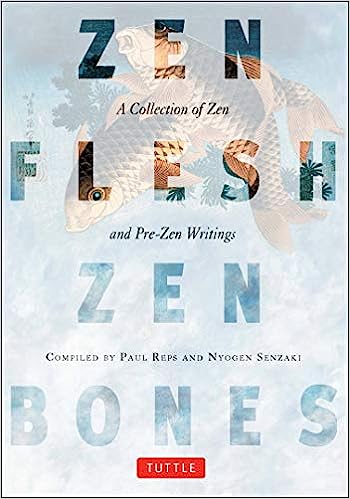
![]()
Test Authority: The Zen Koan: Its History and Use in Rinzai Zen. By Isshu Miura and Ruth Fuller Sasaki. Harper Brace Jovanovich, 1965, Index, Illustrations by Hauikin Ekaku, Zen Capping Phrases Anthology, 156 pages. VSCL, Paperback.
TZR includes books on: Koans Commentaries.
Subject Index to the Book "The Zen Koan" by
Isshu Miura and Ruth Fuller Sasaki, 1966. PDF, September 5, 2023, 5 pages.
Zen Koans: Indexes, Bibliography, Research, Commentary. By Michael P. Garofalo.
Subject Index to 1,975 Zen Buddhist Koans
Keys to Zen Buddhist Koans Database Collection
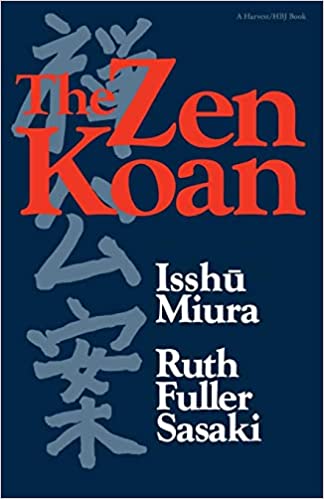
![]()
Zen Master Raven: The Teachings of a Wise Old Bird. Compiled and annotated by Robert Aitken. Illustrated by Jennifer Rain Crosby. Foreword by Nelson Foster. Wisdom, 2002, 2017, 229 pages. VSCL, Hardbound. 183 Brief Koans.
Most koans feature Master Raven giving anwers or comments, and asking follow up questions; therefore, I chose to use the character Master Raven is talking to for the Student/Learner under the index heading of "Master, Teacher." Otherwise, nearly all 183 koans would be listed under Master Raven. Just automatically assume the central teacher in nearly all these koans is Zen Master Raven.
Subject Index to Zen Master Raven's 183 Koans Collection. PDF, November 21, 2023, 28 pages.
Case Titles Index to Zen Master Raven's 183 Koans Collection. PDF, November 21, 2023, 7 pages.
Case Number Index to Zen Master Raven's 183 Koans Collection. PDF, November 21, 2023, 7 pages.
Animals and Responders Index to Zen Master Raven's 183 Koans Collection. PDF, November 21, 2023, 7 pages.
Subject Index to 1,975 Zen Buddhist Koans
Keys to Zen Buddhist Koans Database Collection
Taking the Path of Zen. By Robert Aitken. North Point Press, 1982, 149 pages.
The Gateless Barrier: The Wu-Men Kuan (Mumonkan). Translated with commentary by Robert Aitken. North Point Press, 1991, 325 pages.
Zen Master Raven. Meredith Gammon Hotetsu's Zen Blog. 183 Cases "Each post is a chapter of Robert Aitken's Zen Master Raven, with an introduction and verse by Meredith Hotetsu Garmon."
"A uniquely playful and incisive collection of Zen teaching stories from a beloved American master.
A modern classic, now in a new expanded edition. In the tradition of the great koan collections and the records of ancient masters, Robert Aitken distills a lifetime of teaching down to its essence. Intriguing and deceptively simple, Zen Master Raven is a brilliant encapsulation of Zen in over a hundred koan-like encounters alongside many charming illustrations. Featuring curious beginners like Mallard and Mole and profound teachers like Brown Bear, Moose Roshi, and Zen Master Raven himself, this classic of contemporary Zen and will inspire seekers for generations to come." - Amazon
Zen Master Raven by Robert Aitken. PDF, 2010 Pages. Terebess Bootlegged Copy? Likely an unauthorized bootleg!
"In the tradition of the great koan collections and the records of ancient masters, Robert Aitken distills a lifetime of teaching down to its essence. Intriguing and deceptively simple, Zen Master Raven is a brilliant encapsulation of Zen in over a hundred koan-like encounters alongside many charming illustrations. Featuring curious beginners like Mallard and Mole and profound teachers like Brown Bear, Moose Roshi, and Zen Master Raven himself, this classic of contemporary Zen and will inspire seekers for generations to come." - Review
The Journey: Big Panda and Tiny Dragon. By James Norbury. Illustrated by James Norbury.
Big Panda and Tiny Dragon. By James Norbury. Illustrated by James Norbury.
The Boy, the Mole, the Fox, and the Horse. By Charlie Mckesy. Illustrated.
The Complete Tales of Willie-the-Pooh. By A. A. Milne. Illustrations by Ernest H. Shepard.
The Tao of Pooh and Te of Piglet. By Benjamin Hoff.
Vegetable Roots Discourse: Wisdom from Ming China on Life and Living. By Hong Zicheng. Translated with notes by Robert Aitken. Counterpoint, 2007, 240 pages. "Written 400 years ago by a scholar in the Ming Dynasty, one hundred years after Columbus and around the time Shakespeare completed Henry VI, accomplished scholar and philosopher Hong Zicheng retired from public life and settled down to write an informal compilation of his thoughts on the essence of life, human nature, and heaven and earth. Though he wrote other books as well, only this one has survived—thanks largely to its continuous popularity, first in China and later in Japan and Korea. Entitled Caigentan (Vegetable Roots Discourse), this book has been studied and cherished for four hundred years. Terse, humorous, witty, and. above all, timely, this book offers a provocative and personal mix of Daoist, Buddhist, and Confucian understanding. It contains 360 observations that lead us through paths as complex, absurd, and grotesque as life itself. While it has been translated into many languages, this comprehensive version will immediately become the standard edition for generations of English readers to come.es."
Buddhism: Bibliography, Links, Information, Resources. Compiled by Michael P. Garofalo.
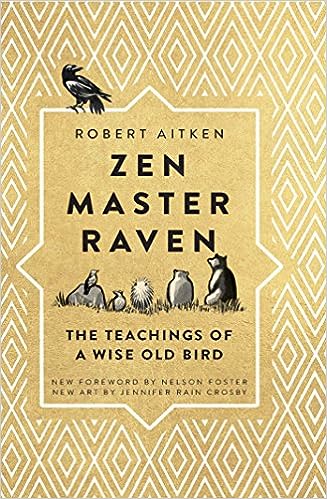
![]()
Zhuangzi (ZHUA) = Zuang Zhou = Chuang Tzu
Subject Index to the 33 Chapters in the Chuang Tzu = Zhuangzi (ZHUA). PDF, 4/10/2023, 20 pages.
Alphabetical List of the 33 Chapters in Chuang Tzu = Zhuangzi (ZHUA). PDF, 4/10/2023, 2 pages.
List of Chapters by Chapter Number Order in Chuang Tzu = Zhuangzi (ZHUA). PDF, 4/10/2023, 2 pages.
Subject Index to 1,546 Taoist Lessons, Chapters, Stories
Subject Index to 3,855 Lessons from Solitary Taoists, Zen Buddhists, and Stoics
Keys to Zen Buddhist Koans Database Collection
The Book of Chuang Tzu. Translated by Martin Palmer and Elizabeth Breuilly. Penguin Classics, 2007, 352 pages. VSCL. 33 Stories.
Chuang-tzu: The Tao of Perfect Happiness. Translated, annotated, and explained. By Livia Kohn. Skylight, 240 pages, VSCL. 33 Stories.
Taoism: Bibliography, Links, Resources, Information. Compiled by Michael P. Garofalo.
Zhuang Zhou = Zhuangzi = Chuang Tzu at Wikipedia
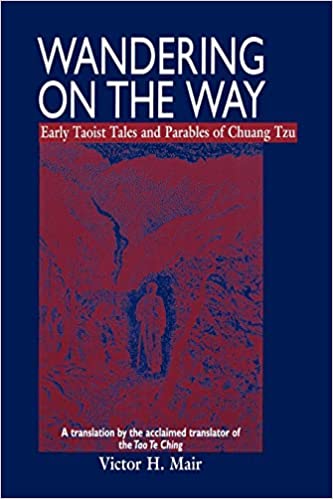
Wandering on the Way. Early Taoist Tales and Parables of Chuang Tzu. Translated by Victor H. Mair. Bantam, 1994, 402 pages. VSCL, Paperback.
The Book of Chuang Tzu. Translated by Martin Palmer. Penguin, 1996, 320 pages, index. VSCL, Paperback.
Chuang Tzu 33 Stories. Composed around 350 BCE. Taoist Classic. Many English language translations and commentary are available.
Text Authority for Indexing: Wandering on the Way. Early Taoist Tales and Parables of Chuang Tzu. Translated by Victor H. Mair, 1994.
Zhuang Zhou = Zhuangzi = Chuang Tzu at Wikipedia
Zhuangzi - Stanford Encyclopedia of Philosophy
Zhuangzi - Internet Encyclopedia of Philosophy
Taoism: Bibliography, Links, Resources, Information. Compiled by Michael P. Garofalo.
![]()
Koans: Quotations, Insights, Poems
"The goal of the Zen koan is enlightenment, which is a profound change of
heart. This change of heart makes the world seem like a different place;
with it comes a freedom of mind and an awareness of the joy and kindness
underlying daily life."
- John Tarrant,
Bring Me the Rhinoceros: And Other Zen Koans That Will Save Your Life,
2008, p. 1
"The Blue Cliff
Record (Chinese:
《碧巖錄》 Bìyán Lù;
Japanese: Hekiganroku (碧巌録?);
Korean: Byeokamrok, 벽암록(碧巖錄);
Vietnamese: Bích nham lục (碧巖錄)) is a collection of
Chán
Buddhist
koans originally compiled in
China during the
Song dynasty in 1125 (宋宣和七年)
and then expanded into its present form by the
Chán master
Yuanwu
Keqin (圜悟克勤 1063 – 1135)(Japanese Engo). The book includes Yuanwu's
annotations and commentary on
Xuedou Zhongxian (Japanese Setcho)'s (雪竇重顯 980 – 1052) collection 100
Verses on Old Cases 《頌古百則》 — a compilation of 100
koans.[2]
Xuedou selected 82 of these from the Jingde Chuandeng Lu 《景德傳燈錄》 (Jingde
era Record of the Transmission of the Lamp), with the remainder selected
from the Yunmen Guanglu 《雲門廣録》 (Extensive Record of
Yunmen Wenyan (864 – 949)."
- Wikipedia
"There are seven things to notice about koans:
1. Koans show you that you can depend on creative moves.
2. Koans encourage doubt and curosity.
3. Koans rely on uncertainty as a path to happiness.
4. Koans will undermine your reasons and your explanations.
5. Koans lead you to see life as funny rather than tragic.
6. Koans will change your idea of who you are, and this will require
courage.
7. Koans uncover a hidden kindness in life."
- John Tarrant,
Bring Me the Rhinoceros: And Other Zen Koans That Will Save Your Life,
2008, pp. 2-3.
"The Gateless Gate (Mandarin:
無門關 Wúménguān;
Japanese: 無門関 Mumonkan), more accurately translated as The
Gateless Barrier, is a collection of 48
Chan (Zen)
koans compiled in the early 13th century by the Chinese Zen master
Wumen
Huikai (無門慧開; Japanese: Mumon Ekai; 1183–1260). Wumen's preface
indicates that the volume was published in 1228. Each koan is accompanied by a
commentary and verse by Wumen. A classic edition includes a 49th case composed
by Anwan (pen name for Cheng Ch'ing-Chih) in 1246. Wu-liang Tsung-shou also
supplemented the volume with a verse of four stanzas composed in 1230 about the
three checkpoints of Zen master Huanglong. These three checkpoints of Huanglong
should not be confused with Doushuai's Three Checkpoints found in Case 47.
Along with the
Blue Cliff Record and the oral tradition of
Hakuin
Ekaku, The Gateless Gate is a central work much used in
Rinzai School practice. Five of the koans in the work concern the sayings
and doings of
Zhaozhou; four concern
Ummon.
The common theme of the koans of the Wumen Guan and of Wumen's comments is the
inquiry and introspection of dualistic conceptualization. Each koan epitomizes
one or more of the polarities of consciousness that act like an obstacle or wall
to the insight. The student is challenged to transcend the polarity that the
koan represents and demonstrate or show that transcendence to the Zen teacher."
- Wikipedia
"In studying a koan two approaches are possible: one is for the student to take it
up as the subject of scholastic or philosophical research, and another is to do zazen with it as a means of training. The philosophical or dogmatic studies of koan are of secondary significance because the standpoint of such studies is fundamentally different from that of true Zen training, in which the only aim is to experience and live the real working spirit of Zen."
- Zenki Shibayama, The Gateless Barrier
"If this [a scientific finding] contradicts some aspepct of Buddhist doctrine as contained in the scriptures, we have no other choice but to accept that the teaching is in need of interpretation. Thus, we cannot accept it literally simply because it has been taught by the Buddha; we have to examine whether it is contradicted by reason or not. If it does not stand up to reason, we cannot accept it literally. We have to analyze such teachings to discover the intention and purpose behind them and regard them as subject to interpretatiion. Therefore, in Buddhism great emphasis is laid on the importance of investigation."
- His Holiness the Dalai Lama XIV
"The kõan practice is first and foremost a religious practice, undertaken
primarily not in order to solve a riddle, not to perfect the spontaneous
performance of some skill, not to learn a new form of linguistic expression, not
to play cultural politics, and not to carry on scholarship. Such ingredients may
certainly be involved, but they are always subservient to the traditional
Buddhist goals of awakened wisdom and selfless compassion."
- Victor Sogen Hori,
Capping Phrases
"The Zen tradition sometimes loads a word with positive, negative, concrete and transcendental meanings, thus making its semantics ambiguous or enigmatic. ...Over thirty books of Dogen translations and studies have been published in English, which makes Dogen by far the most extensively studies East Asian Buddhist in the Western World. ...Over seven hundred years after his time, Dogen's writings are still fresh and captivating for Buddhists and non-Buddhists. The paradoxes, absurd images, and ofter impenetrable language in his essay are not merely exotic or intriguing. They point to a part of human consciousness that goes unnoticed. Dogen's writing reveals a reality that is only experienced through a life-long investigation of nonduality. The Freeedom - including freedom from thinking itself and language itself - that we see in Dogen's writing us stunning.
- Kazuaki Tanahashi, Enlightenment Unfolds, 2000, Introduction.
"The Japanese term kōan is the Sino-Japanese reading of the Chinese word gong'an (Chinese: 公案; pinyin: gōng'àn; Wade–Giles: kung-an;
literally: "public case"). The term is a compound word, consisting of the characters 公 "public; official; governmental; common; collective; fair; equitable" and 案 "table; desk; (law) case; record; file; plan; proposal." According to the Yuan Dynasty Zen master Zhongfeng Mingben (中峰明本 1263–1323), gōng'àn originated as an
abbreviation of gōngfǔ zhī àndú (公府之案牘, Japanese kōfu no antoku—literally
the andu "official correspondence; documents; files" of a gongfu "government post"), which referred to a "public record" or the "case records of
a public law court" in Tang-dynasty China. Kōan/gong'an thus serves as a metaphor for principles of reality beyond the private opinion of one person, and a
teacher may test the student's ability to recognize and understand that
principle. Commentaries in kōan collections bear some similarity to
judicial decisions that cite and sometimes modify precedents. An article by T.
Griffith Foulk claims "Its literal meaning is the 'table' or 'bench' an of a 'magistrate' or 'judge' kung. Gong'an was itself originally a metaphor—an article
of furniture that came to denote legal precedents. For example, Di Gong'an (狄公案) is the original title of Celebrated Cases of Judge Dee, the famous Chinese detective novel based on a historical Tang dynasty judge. Similarly, Zen
kōan collections are public records of the notable sayings and actions of Zen
disciples and masters attempting to pass on their teachings. 公 (public) 案
(record). A public record serves as a metaphor for principles of reality
beyond the private opinion of one person, and a teacher may test the student's
ability to recognize and understand that principle."
- Wikipedia
"Koan: Originally a term for an official matter for which a judgment was
required, it was taken over by Buddhists and used first in reference to a
subject of meditation and later for a subject for which an answer was required
that would demonstrate a student's understanding."
- Red Pine, The Diamond Sutra, p. 451
"A koan is a little nugget of something an awakened master did during his lifetime."
- Henry Shukman
Zen Koans: Indexes, Bibliography, Research, Commentary. By Michael P. Garofalo.
The Blue Cliff Record.
"Master Dogen expresses his ideas in the Shobogenzo based on a pattern of four phases. First, he explains a problem from the idealistic point of view; that is, as an idea using abstract concepts. Then, immediately after this first phase, he explains the same problem, but this time from the objective, or material point of view. In other words, he gives concrete examples and facts. Then, in the next phase, he explains the problem yet a third time as a real problem; that is, on the basis of action. Of course, he cannot fully explain the reality surrounding the problem with words in a book, but he does so by bringing together the subjective viewpoint which he presents first, and the second objective viewpoint. He synthesizes the two viewpoints into a realistic appraisal of the problem based upon the philosophy of action, which states that in action, there is a synthesis of the self and the external world. And in the final phase, he tries to suggest the subtle ineffable nature of reality itself by using symbolic, poetic, or figurative forms of speech. The Shobogenzo is full of these four-phased explanations. The chapters themselves fall into four groups: theoretical, objective, realistic, and figurative or poetic."
- Master Dogen's Shinji Shobogenzo: 301 Koan Stories
"To promote full absorption in the koan and penetration of each point, many masters advocate the use of a huatou (, J., watō), a word or brief phrase that stands in for the full koan and that, with enough determination and practice, you can learn to carry in the midst of daily life and even in sleep, as well as during periods of formal, seated practice (zazen)."
- Entangling Vines
"British-American philosopher Alan Watts discovered a kindred spirit between Zen writings, haiku, and koans with beat poetry. Watts writes that it’s not about impressing the listener or conveying a grand meaning, but rather “to evoke something in the listener.” Self-discovery is the goal, he continues, which you do not reach by seeking. Rather, he writes, "It is not achieved by looking out of the corner of your eye to see if everybody else is getting the same results as you or by trying to find out what others have already discovered. It is achieved by going down into one’s own inner, secret place and asking there for a direct encounter with the world, independent of convention."
- Ten Buddhist Koans: And Why Understanding Them is Pointless
John Tarrant Introduces 8 Different Koan Types
Predicament Koans
Impossible Task Koans
Dream Body Koans
Inquiry Koans
Bright Gate Koans
Vast Emptiness Koans
Awakening Koans
Intimacy and Immerscion Koans
John Tarrant, Pacific Zen Institute
"One essential point about koan study is to reflect on the dialogue and
determine exactly what is being said. If you are assigned a koan to study,
the first thing you should do is memorize it and think about it. Just
don't imagine deep realization will immediately come to you in a flash of light.
Think about the koan. What are the people in it saying? What is
motivating them. What is motivating you? Which line of the koan is
most important?"
- Gerry Shishin Wick, The Book of Equanimity, 2005, p. 5
"Mind illuminates old teachings. Old teachings illuminate mind."
- Hakuin Ekaku
Books I Use in My Research and Study of Koan Collections
"Koans show you that you can depend on creative moves.
Koans encourage doubt and curiosity.
Koans rely on uncertainty as a path to happiness.
Koans will undermine your reasons and your explanations.
Koans lead you to see life as funny rather than tragic.
Koans will change your ideas of who you are, and this will require courage.
Koans uncover a hidden kindness in life."
- John Tarrant, Bring Me the Rhinoceros, p. 2
"Reflective meditation is a way of translating thoughts into the language of
feeling. It explores the relation between the way we think about and
perceive things and the way we feel about them. We find that even the
strongest, seemingly self-evident intuitions about ourselves are bas on equally
deep-seated assumptions. Gradually learning to see our life in another way
through reflective meditation leads to feeling different about it as well."
- Stephen Batchelor, Buddhism Without Beliefs, 1997, p. 32
"Don't try to hard. You show up. Trust what you don't know. Experiment. The koan can be your friend. Any part of the koan is all the koan. You don't need a special state of mind. Have confidence in yourself."
- How to Practice Zen Koans By John Tarrant
"A koan is a little nugget of something an awakened master did during his lifetime."
- Henry Shukman
"The Lin-chi master Fen-yang Shan-chao (947-1024) was the first to employ all these various trends. His "record," the Fen-yang Wu-te ch'an-shih yu-lu, includes three collections of 100 koans each. The first collection consists of old koans, for each of which Fen-yang wrote a verse epitomizing the import of the koan in poetical language. The second consists of of koans he himself had made and for which he provided his own anwswers. The third is made up of old koans, together with Fen-yang's alternative answers to them. These three collections became the models for later literary productions of a similar kind."
- Ruth Fuller Sasaki, The Zen Koan, 1965, p. 12
"Zen cherishes simplicity and straightforwardness in grasping reality and acting on it “here and now,” for it believes that a thing-event that is immediately presencing before one’s eyes or under one’s foot is no other than an expression of suchness. In other words the thing-event is disclosing its primordial mode of being such that it is as it is. It also understands a specificity of the thing-event to be a recapitulation of the whole; parts and the whole are to be lived in an inseparable relationship through an exercise of nondiscriminatory wisdom, without prioritizing the visible over the invisible, the explicit over the implicit, or vice versa."
- Japanese Zen Buddhist Philosophy - Stanford Encyclopedia of Philosophy
"Koans are the folk stories of Zen Buddhism, metaphorical narratives that
particularize essential nature. Each koan is a window that show the whole truth
but just from a single vantage. It is limited in perspective.One hundred koans
give one hundred vantages. When they are enriched with insightful comments and
poems, then you have ten thousand vantages. There is no end to this process of
enrichment."
- Robert Aitken, 1990, Book of Serenity
"The Koans do not represent the private opinion of a single man, but rather the highest principle, received alike by us and by the hundreds and thousands of bodhisattvas of the three realms and ten directions. This principle accords with the spiritual source, tallies with the mysterious meaning, destroys birth and death, and transcends the passions. It cannot be understoord by logic; it cannot be transmitted in words, it cannot be explained in writing; it cannot be measured by reason. It is like the poisoned drum that kills all who hear it, or like a great fire that consumes all who come near it. What is called the "special transmission of the Vulture Peak" was the transmission of this; what is called "direct pointing of Bodhidharma at Shao-lin-ssu" was a pointing at this."
- Ruth Fuller Sasaki, The Zen Koan, 1965
"Pure consciousness without concepts, if there could be such a thing, would be a booming, buzzing confusion, a sensory field of flashes of light, unidentifiable sounds, ambiguous shapes, color patches without significance. This is not the consciousness of the enlightened Zen master."
- Victor Hori
"On quite a different plane, that of method, Edmund Husserl and the phenomenologists, by their very extravagances, reinstate the world in its diversity and deny the transcendent power of the reason. The spiritual universe becomes incalculably enriched through them. The rose petal, the milestone, or the human hand are as important as love, desire, or the laws of gravity. Thinking ceases to be unifying or making a semblance familiar in the guise of a major principle. Thinking is learning all over again to see, to be attentive, to focus consciousness; it is turning every idea and every image, in the manner of Proust, into a priviledged moment. What justifies thought is its extreme conscousness.."
- Albert Camus, The Myth of Sisyphus
"In the Sōtō school of Zen, Shikantaza, meditation with no objects, anchors, or content, is the primary form of practice. The meditator strives to be aware of the stream of thoughts, allowing them to arise and pass away without interference. Considerable textual, philosophical, and phenomenological justification of this practice can be found throughout Eihei Dōgen's works."
"These stories and sayings contain patterns, like blueprints, for various
inner exercises in attention, mental posture, and higher perception, summarized
in extremely brief vignettes enabling the individual to hold entire universes of
thought in mind all at once, without running through doctrinal discourses or
disrupting ordinary consciousness of everyday affairs."
- Thomas Cleary, 1994, Instant Zen
Hua Tou (話頭,
Korean: hwadu, Japanese: wato) is a form of Buddhist meditation common in the teachings of Chinese Chán and Korean
Seon. Hua Tou can be translated as 'word head', 'head of speech' or
'point beyond which speech exhausts itself'. A Hua Tou can be a
short phrase that is used as a subject of meditation to focus the mind. Hua Tou are based on the encounter-dialogues and koans of the interactions between past masters and students, but are shorter
phrases than koans. The Hua Tou method was invented by the Chinese
Zen master Dahui
Zonggao (1089 – 1163) who was a member of the Linji
school. Dahui was interested in teaching the lay community. To
practice Hua Tou, one concentrates on the phrase, initially repeating it
silently with a questioning and open mind and then thinking about "Who" or
"What" is generating the Hua Tou, this brings about "Great Doubt".
According to Chan master Sheng Yen, there are three stages of Hua Tou practice: reciting the Hua Tou, asking the Hua Tou and investigating the Hua Tou.
Through these stages it is important not to try to answer the Hua Tou intellectually, but to persistently ask the question mindfully with genuine
interest and sincere desire to know. It is through this constant practice that
great doubt and then insight arises. Examples of Hua Tou are: "What
is it?, What is this? Who is repeating the Buddha's name?, Who am I?, Who
is dragging this corpse around?, Mu?". The important thing is to stick to Hua Tou at all times, when walking, lying, or standing. From morning to
night observing Hua Tou vividly and clearly, until it appears in your
mind like the autumn moon reflected limpidly in quiet water. If you practice
this way, you can be assured of reaching the state of Enlightenment."
- Hua Tou in
Wikipedia
"There are basically two methods utilized in meditation practice in Zen Buddhism to assist the practitioner to reach the above-mentioned goals, together with a simple breathing exercise known as “observation of breath count” (sūsokukan); one is the kōan method and the other is called “just sitting” (shikan taza), a form of “single act samādhi.” For example, the former is employed mainly by the Rinzai school of Zen Buddhism, while the latter by the Sōtō school; they are the two main schools of this form of the Buddha-Way still flourishing today in Japan. In the Rinzai school, the kōan method is devised to assist the practitioner to become a “Zen person” (Kasulis, 1981) who fully embodies both wisdom and compassion. A kōan is formulated like a riddle or puzzle and is designed in such a way that intellectual reasoning alone cannot solve it without breaking through the barrier of ego-consciousness by driving it to its limit. This is, Zen believes, because ego-consciousness is fortified by the shield of a dualistic conceptual paradigm with all its attendant presuppositions and conditions. The ego-consciousness of a given cultural and historical milieu accepts that paradigm to be true in order to live a life anchored in the everyday standpoint.
According to Hakuin (1685–1768), who systematized kōans, there are formally seventeen hundred cases of kōans, and if sub-questions are added to them, a total number of cases comprising the system would be roughly three thousand. The Zen practitioner of the Rinzai school is required to pass them all in a private consultation with a Zen master who checks the practitioner’s state of mind before he or she is granted a seal of transmission. This transmission is said to occur “only from a Buddha to a[nother] Buddha” (yuibutsu yobutsu).
Kōans are accordingly grouped into five categories in a most fully developed system: the first group is designed for reaching li (suchness) (richi) or the body of truth (hosshin), i.e., an enlightenment experience; the second group for a linguistic articulation (gensen) of meditational experiences in order to master the skillful use of language; the third group for those kōans truly difficult to pass (nantō); the fourth group for the practitioner to make an insight of kōan experiences pertinent to daily life (kikan) in order to embody a middle-way in which the practitioner won’t be steeped either in the state of meditation or the activity of daily life; and the fifth group for going beyond the state of buddhahood by erasing all traces of enlightenment in order to achieve a traceless enlightenment (kōjō).
The Rinzai school summarizes this process of self-cultivation in four mottoes: “being a special transmission outside of the scriptures,” “having no dependence on words and letters,” “pointing directly into [one’s] human mind,” and “seeing into [one’s] nature to become a buddha.” (See, for examples, The Gateless Gate and The Blue Cliff Record.) While the first two phrases point to the fact of discovering an extra-linguistic reality that naturally opens up in meditational experience and of articulating it linguistically in the “best” way according to the capacity of an individual practitioner, the last two phrases indicate a concretization of the original or inherent enlightenment (hongaku) in the Zen practitioner, where the original enlightenment means that human beings are innately endowed with a possibility of becoming a Buddha."
- Japanese Zen Buddhist Philosophy - Stanford Encyclopedia of Philosophy
"In the past, kong-an practicing meant checking someone's enlightenment.
Now we use kong-ans to make our lives correct... You must use kong-ans to take
away your opinions. When you take away your opinions, your mind is clear like
space, which means from moment to moment you can reflect any situation and
respond correctly and meticulously."
- Seung Sahn, 1992, The Whole World is a Single Flower
"I once said to a lady of great philosophical attainments, "I remember reading the following problem in some magazine:--
'Which of the following pictures most truly represents Peace?'
1.
A fire-side scene, the kettle singing on the hop, a cat contentedly sitting there.
2. A small bird perched on a slender branch over a roaring cataract.
3. A skull and some bones in the desert.
Which of them would you choose?" (Of course you were supposed to choose No. 2.)
She answered, "A picture of two drunken louts having a fight."
- R. H. Blyth, Zen in English Literature and Oriental Classics, 1942, p. 179
"Though Zen teachers and practitioners insist that the meaning of a koan can only be
demonstrated in a live experience, and that it cannot be conveyed by texts, the
Zen tradition has produced a great deal of literature, including thousands of
koans and dozens of volumes of commentary. Nevertheless, teachers have
long alerted students to the danger of confusing the interpretation of a koan
with the realization of a koan. When teachers say, "do not confuse the
pointing finger with the moon," they indicate that the ability to interpret
koans should not be equated with enlightenment. Understanding the literary
and historical context of a koan can often remove some of the mystery
surrounding it. For example, evidence suggests that when a monk asked Zhaozhou
"does a dog have Buddha-nature or not?," the monk was asking a question that
students had asked teachers for generations. The controversy over whether all
beings have the potential for enlightenment is even older —and in fact, vigorous
controversy still surrounds the matter of Buddha nature. No amount of
interpretation seems to be able to exhaust a koan; there can be no "definitive"
interpretation. Teachers typically warn against over-intellectualizing koans,
but some of the mystery can be dispelled by clarifying metaphors that were
probably well known to monks at the time the koans originally circulated."
- Koans: The New
World Encyclopedia
Zen Koans: Indexes, Bibliography, Research, Commentary. By Michael P. Garofalo.
Non-Rational or Beyond-Rational Zen (Chan) Buddhist
Meditation/Contemplation Techniques, Checking Verses, Tales, Jolts, Sparks, Songs
Brief Dialogues, Encounters, Revelations, Epipanies, Insights, Introspections,
Mystical Unfolding, Kensho, Samadhi, Ecstasy, Enlightenment
Teaching, Learning, and Practices Using Zen (Rinzai and Soto Zen) Koans and Stories.
Brief Taoist stories, tales, chapters, dialogues, sparks, verses. puzzles, and questions and answers, Daoist Lore and Practices, Poetry
Brief lectures, sermons, statements, parables, stories, summaries, aphorisms, explanations, homilies
Contemplation, Rumination, Meditation, Introspection, Reflection, Thought,
Intuition, Mulling, Study, Immersion, Consideration
Purpose: Insight, Understanding, Realization, Change of Heart, Awakening, Enlightenment, Clarity, Peace, Calm, Awareness, Compassion
"In the tenth century BCE, the Brahmin priests of India developed a contest called the Brahmodya that could be a model for all of us. The goal was to find a verbal formula to define the Brahman by pushing language as fare as it could go until it broke down, making the participants vividly aware of the ineffable. The challenger would as a puzzling question and his opponents='s reply had to be apt but equally inscrutable. The winner was the contestant who reduced his opponents to silence, for in that silence the Brahman was present, manifest in the stunning realization of the impotence of speech."
- Karen Armstrong, Sacred Nature, p 64.
"The Koan is a torch of wisdom that lights up the darness of feeling and discrimination, a golden scraper that cuts away the film clouding the eye, a sharp axe that severs the root of birth and death, a divine mirror that reflects the original face of both the sacred and secular. Through it the intention of the Patriarch is made abundantly clear, the Buddha-mind is laid open and revealed. For the essentials of complete transcendence, final emancipation, total penetration, and identical attainment, nothing can surpass the Koan."
- Ruth Fuller Sasaki, The Zen Koan, 1965
"The brain is wider than the sky,
For, put them side by side,
The one the other will contain
With ease, and you beside."
- Emily Dickinson
"Literally, the word koan (Chinese., kung-an) is a combination
of graphs that signifies "public notice" or "public announcement." A koan,
therefore, presents a challenge and an invitation to take seriously what has
been announced, to ponder it and respond to it. But the special character
of this "announcement" confronts the listener or reader with a perplexing
puzzle. One becomes confused, and the more one tries to come up with an
answer and search for a solution, the more confused one gets. The essence
of of the koan is to be rationally unresolvable and thus point to what is 'arational."
The koan urges us to abandon our rational thought structures and step beyond our
usual state of consciousness in order to press into new and unknown dimensions.
This is the common purpose of all koans, no mater how much they may differ in
content or literary form."
- Heinrich Dumoulin, "The Song Period: A Time of Maturation."
"One of the great virtues of koans is they get us to
think, not in an analytical way, but with our complete mind."
- Philip Kapleau, Straight to the Heart of Zen, 2001
公案
Subject Index to 1,975 Zen Buddhist Koans
Koans, Essays, Books, Lectures, Links, Information
Indexing by Michael P. Garofalo
Tenth Version, December 28, 2023. Updated Monthly. PDF, 578 Pages.
Green Way Research, Vancouver, Washington
Zen Buddhist Koans: Indexes, Information, Bibliography:
https://www.egreenway.com/buddhism/koansdup1.htm
Subject Index to 1,975 Zen Buddhist Koans
Keys to Zen Buddhist Koans Database Collections
Subject Index to 3,055 Lessons from Zen Buddhists, Solitary Taoists, and Stoics
Subject Index to 1,975 Zen Buddhist Koans
Subject Index to 1,546 Taoist Lessons, Chapters, Stories
Subject Index to 813 Stoic Lessons, Discourses, and Letters
Keys to Zen Buddhist Koans Database Collection
![]()
![]()
Critique of Zen Buddhist Koans
The Fireplace Records. 40 Chapters By Michael P. Garofalo
Chan Insights and Oversights: An Epistemological Critique fo the Chan Tradition. By Bernard Faure. Princeton University Press, 1993, index, bibliography, notes, 322 pages. VSCL.
The Rhetoric of Immediacy: A Cultural Critique of Chan/Zen Buddhism. By Bernard Faure. Princeton UP, 1991, index, bibliography, notes, 420 pages. VSCL.
Other Critics: Arthur Koestler, Rene Etiemble, and the Four Horsemen of Atheism: Christopher Hitchens, Daniel Dennett, Richard Dawkins,
and
Sam Harris, VSCL.
Bertrand Russell on God and Religion. Edited by Al Seckel. Prometheus Books, 1986, index, 250 pages, VSCL.
Buddhism Without Beliefs: A Contemporary Guide to Awakening.
By Stephen Batchelor. New York, Riverhead Books, 1997.
Notes, 127
pages. VSCL.
![]()
Biography of Michael P. Garofalo
Michael Peter Garofalo (1945-) grew up in East Los Angeles, was educated in Catholic Schools, graduated (B.A., M.S.) from local universities, married Karen, served in the US Air Force, worked in and managed many City and Los Angeles County Public Libraries, raised two children (Alicia and Michael), socialized, traveled, and learned. In 1998, we moved to a rural 5 acre property in Red Bluff, in the North Sacramento Valley, CA. A webmaster since 1999. Worked part-time for the Corning School District (Technology and Media Services Manager); and as a Yoga, Taijiquan, and fitness club instructor until 2016. Traveled extensively in Northern California, Oregon, and Washington. We both retired, and we moved to Vancouver, Washington, in 2017. Currently in 2023: reading, walking, gardening, philosophy research, writing, web publishing, monthly oceanside yurt camping retreats, family events, harmonica playing, sports events, playing Tai Chi Chuan, Yoga and Qigong, Nature mysticism, poetry research, history research, and compiling and indexing.
Cloud Hands Blog by Michael P. Garofalo
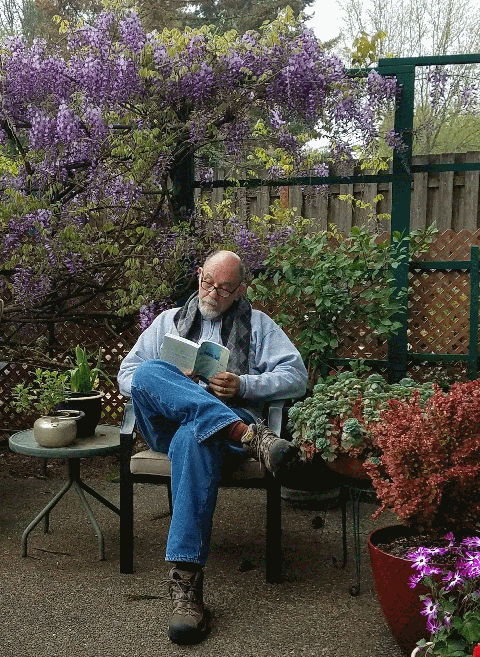
Research by Michael P. Garofalo
This webpage was first published on the Internet on December 6, 2014.
This webpage was last updated, changed, reformatted, improved, edited, expanded, revised or modified on December 12, 2023.
Green Way Research, Red Bluff, California (1998-2017); Vancouver, Washington (2017-2023)
How to Live a Good Life: Advice from Wise Persons
The Fireplace Records
By Michael P. Garofalo
SUZ Subjects
Daisetsu Teitaro Suzuki Books, Lectures, Essays
Subject Index
First Version, November 19, 2023
Indexing by Michael P. Garofalo
Vancouver, WA
SUZA Essays in Zen Buddhism 1st Series
SUZB Essays in Zen Buddhism, 2nd Series
SUZC Essays in Zen Buddhistm, 3rd Series
SUZD The
Field of Zen
SUVF The Manual of Zen Buddhism
SUZG Mysticism: Christian and Buddhist
SUZI Selected Writings of D. T. Suzuki
SUZK The Awakening of Zen
Zen Buddhist Koans: Indexes, Information, Bibliography:
https://www.egreenway.com/buddhism/koansdup1.htm